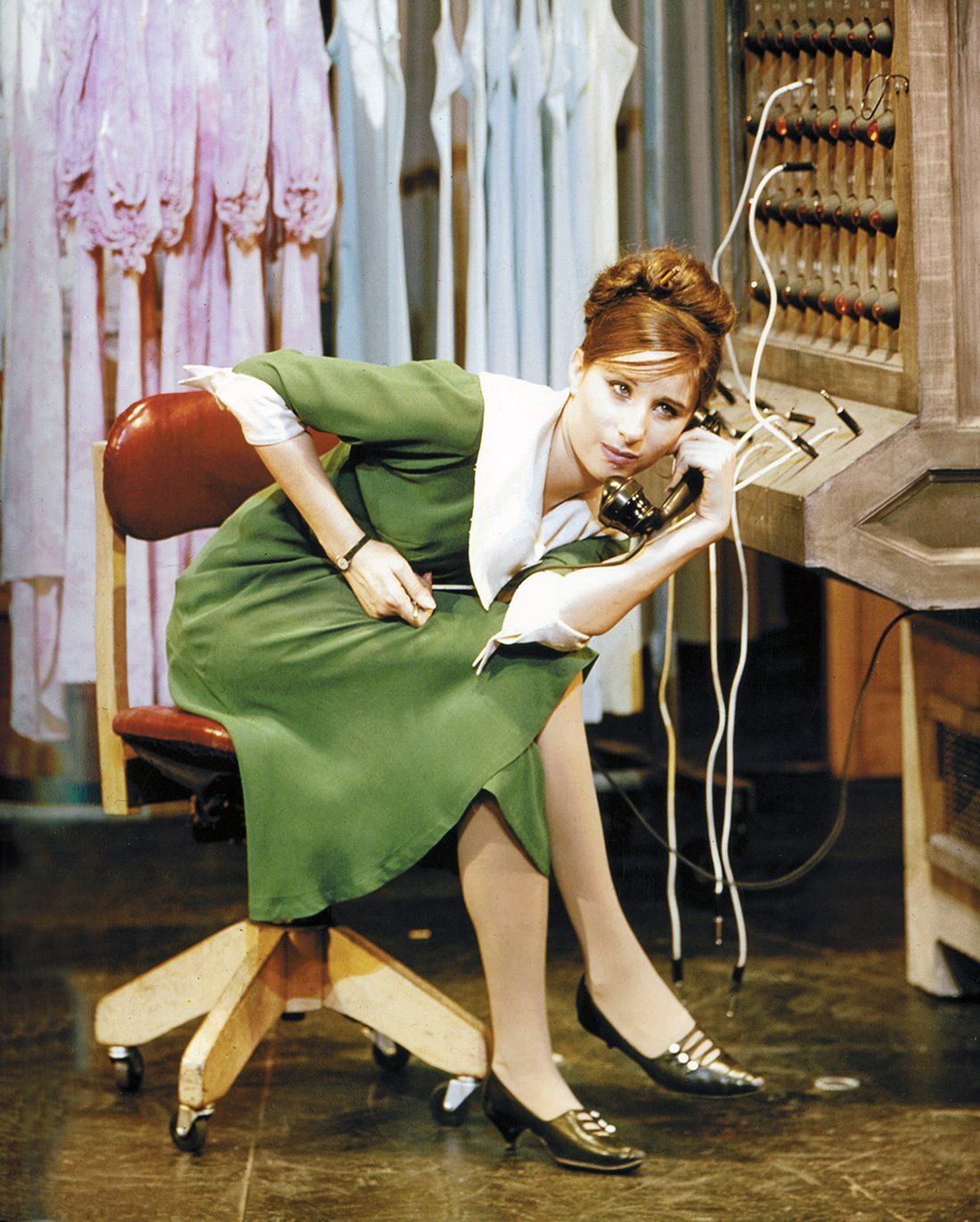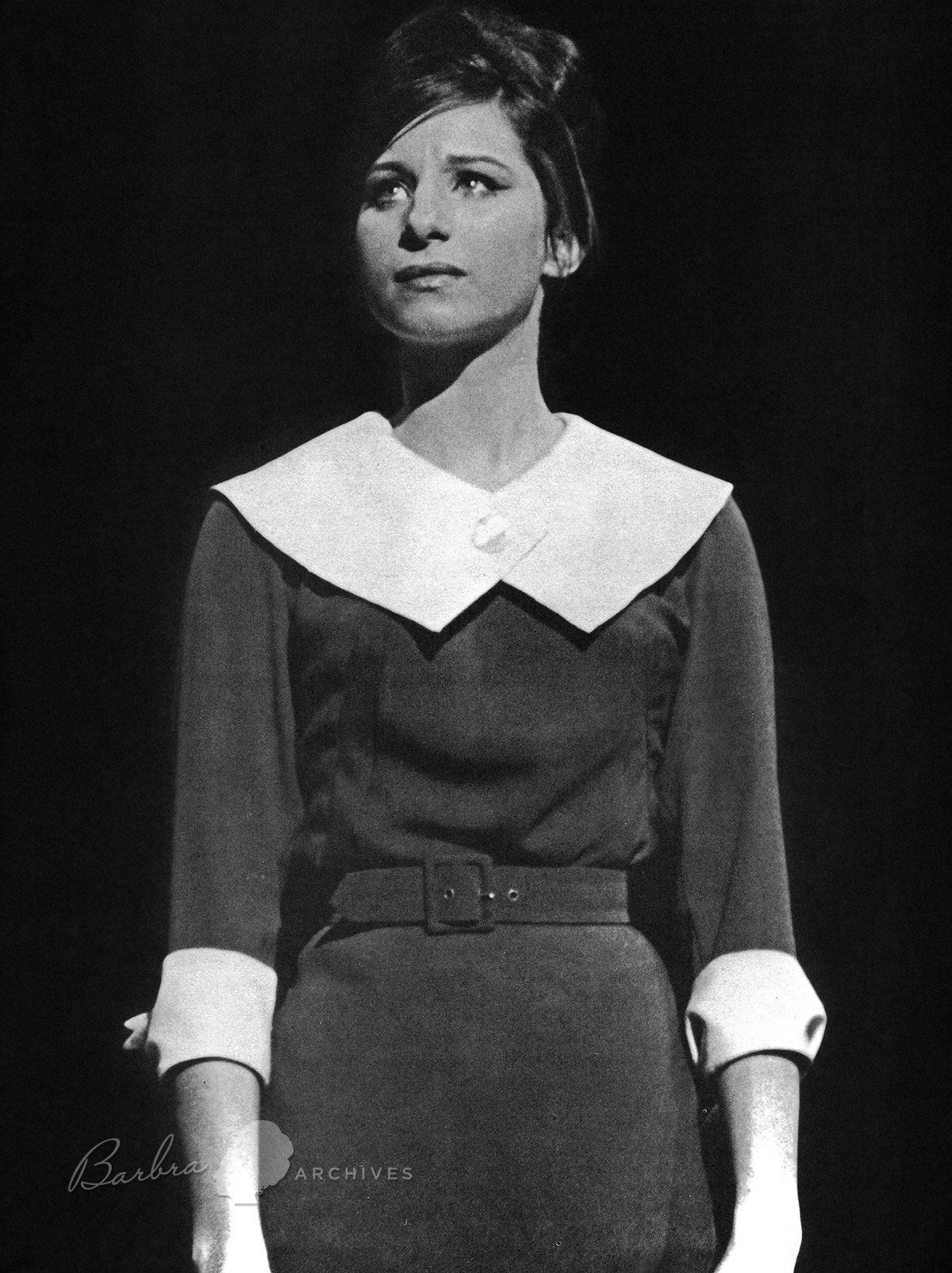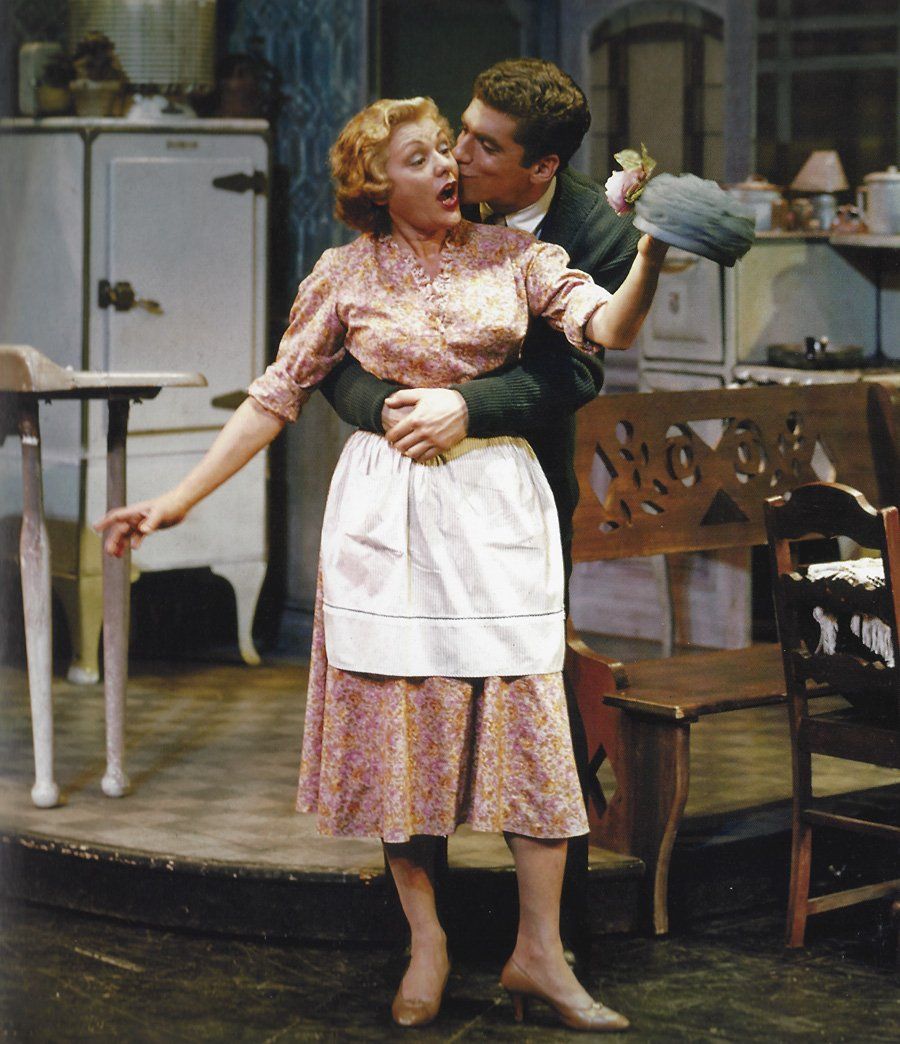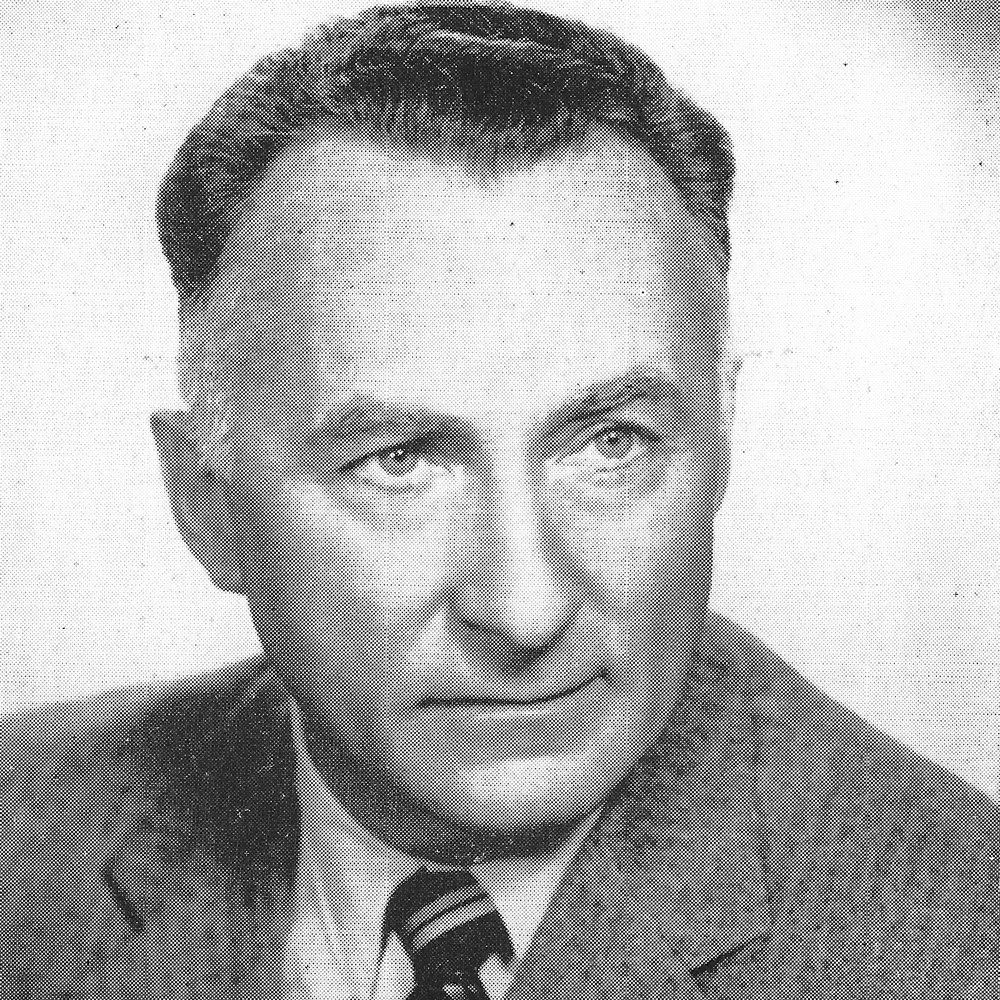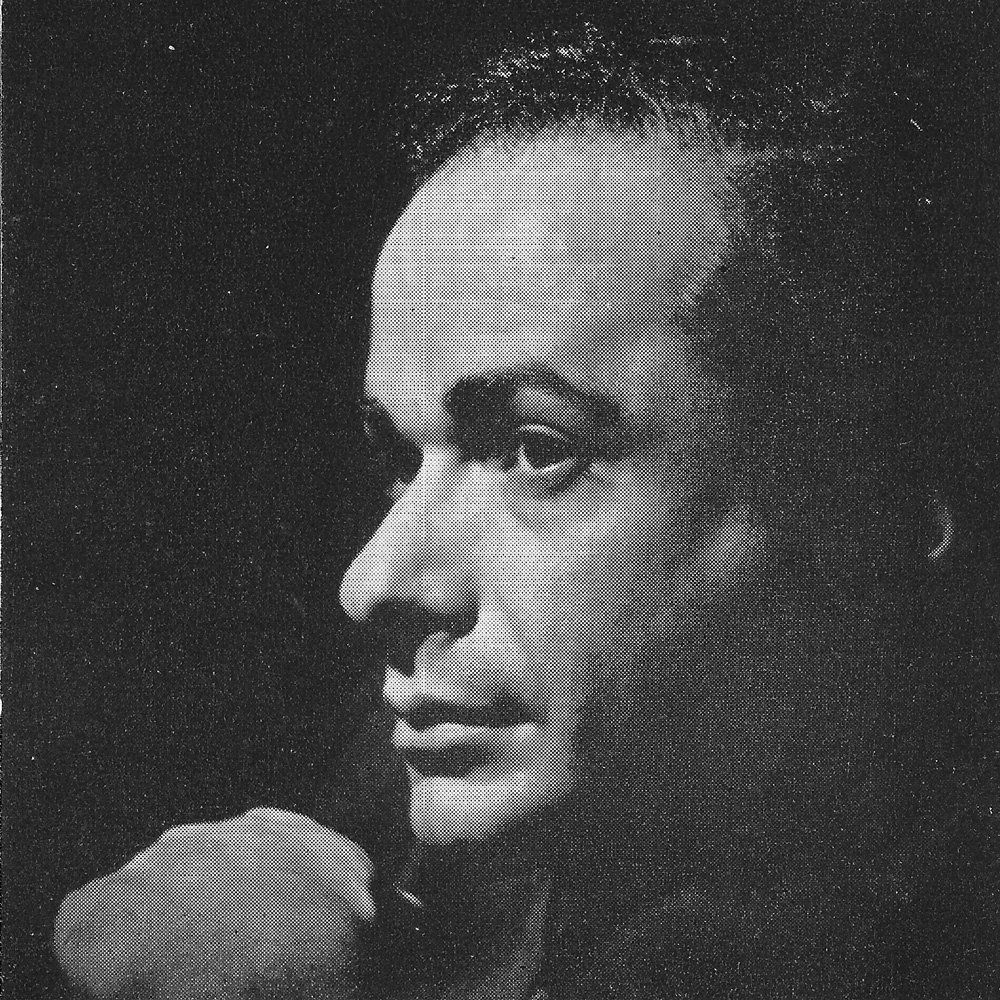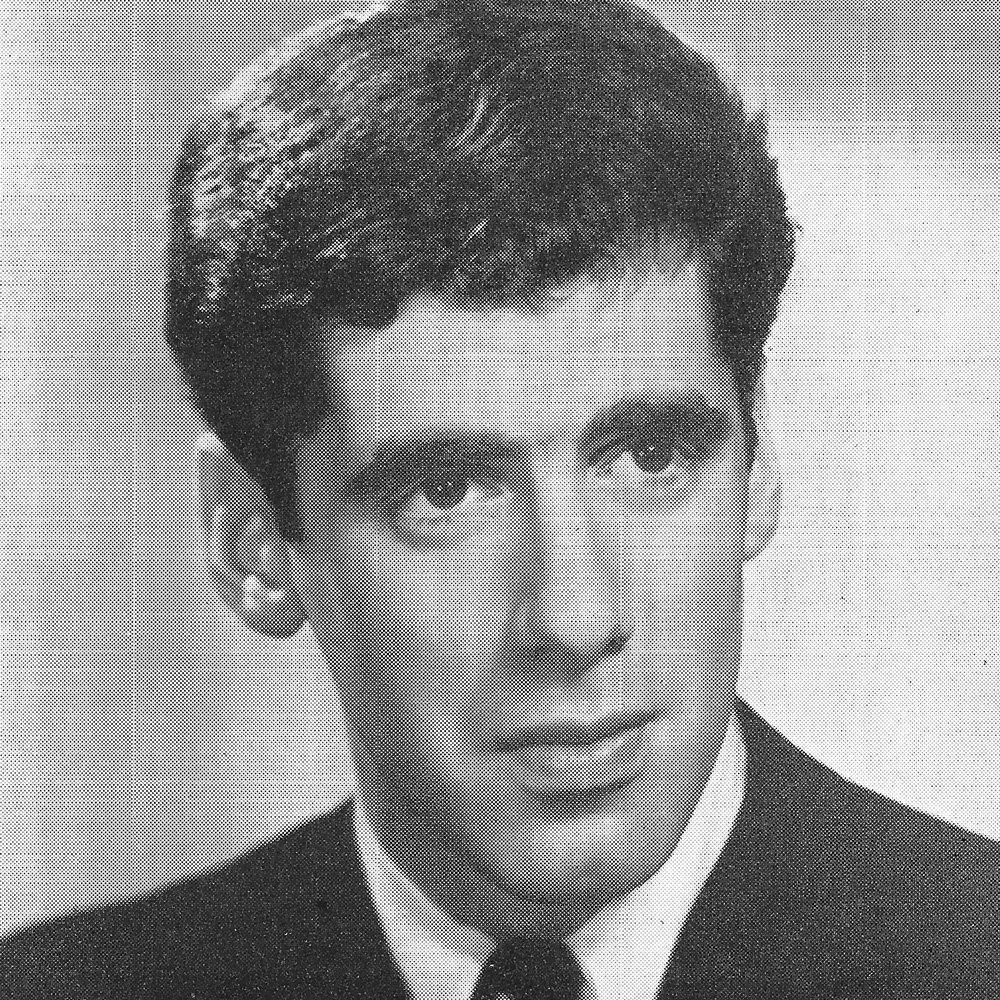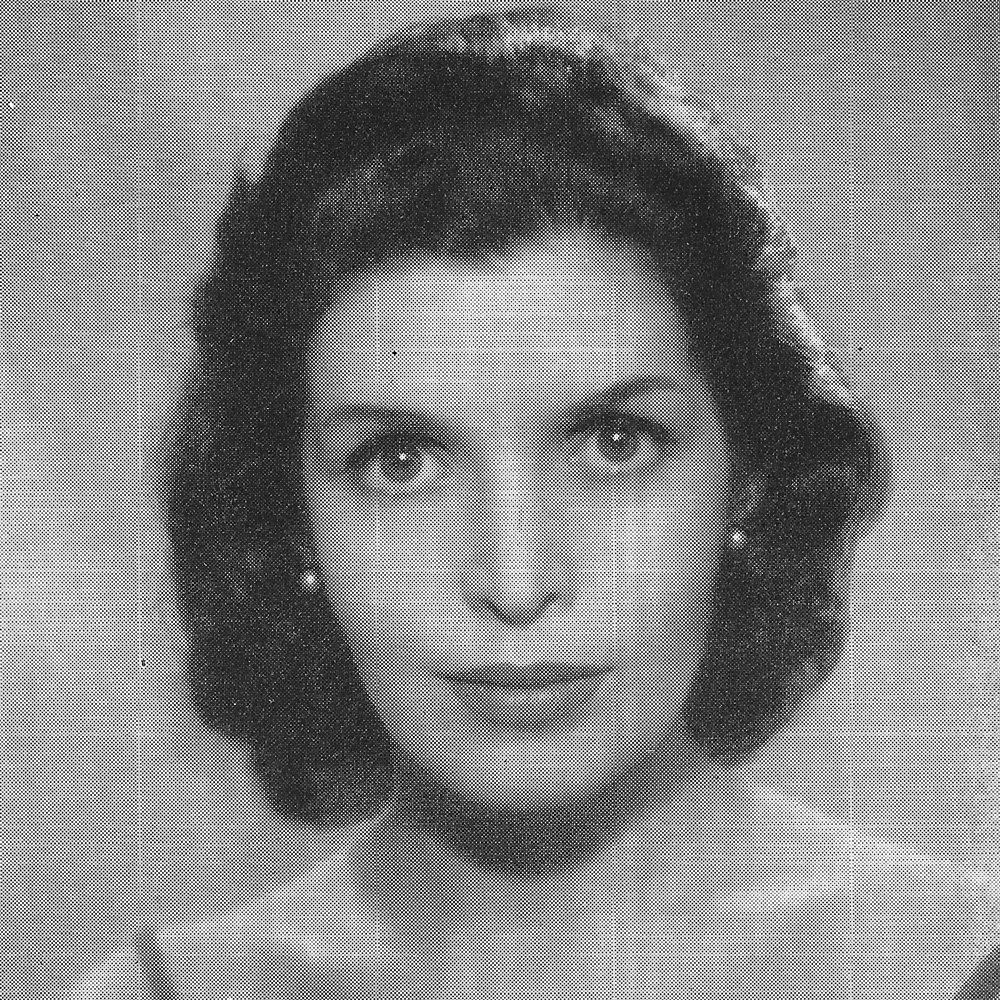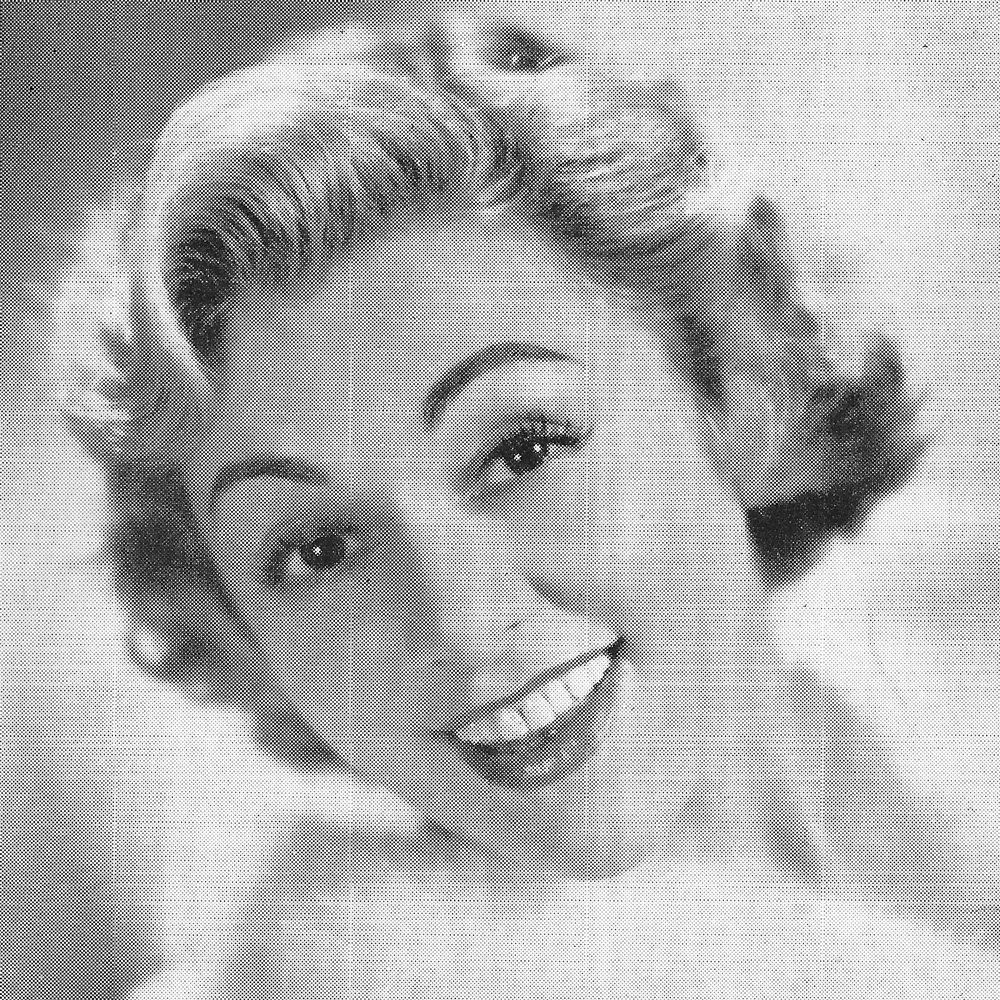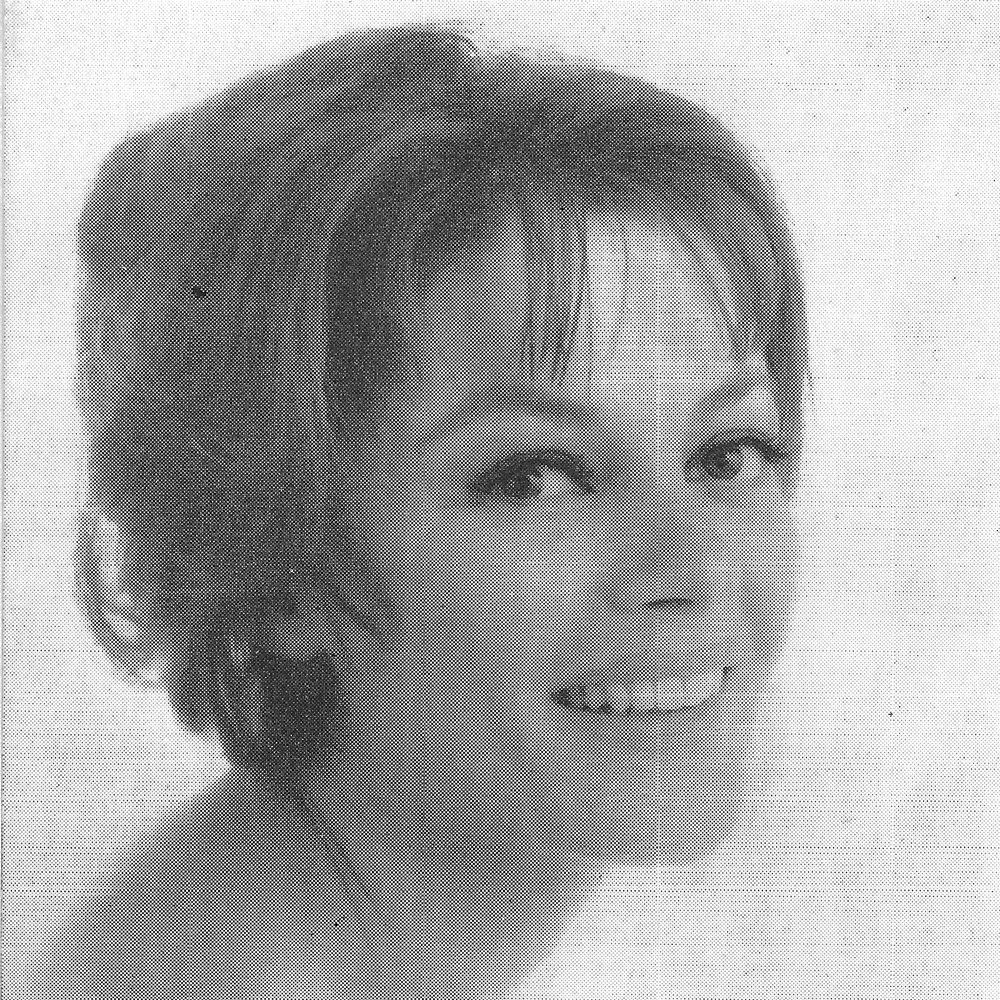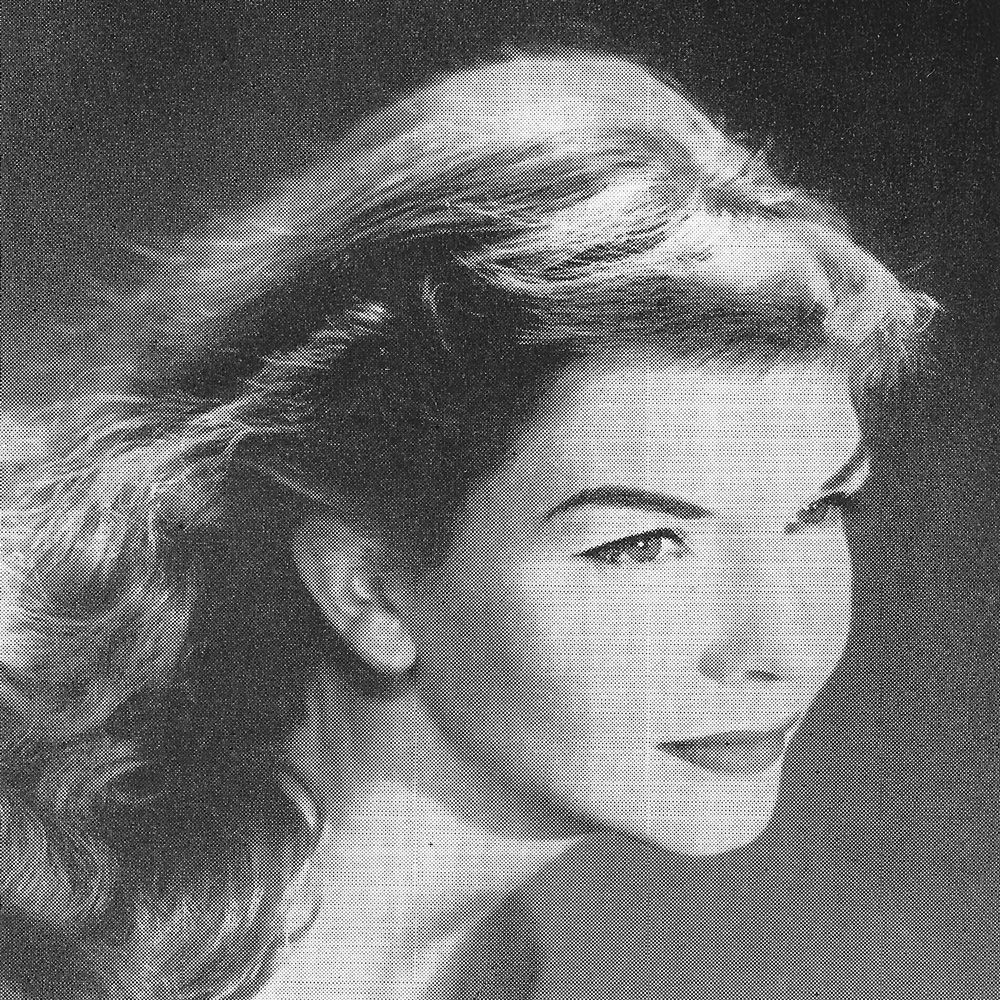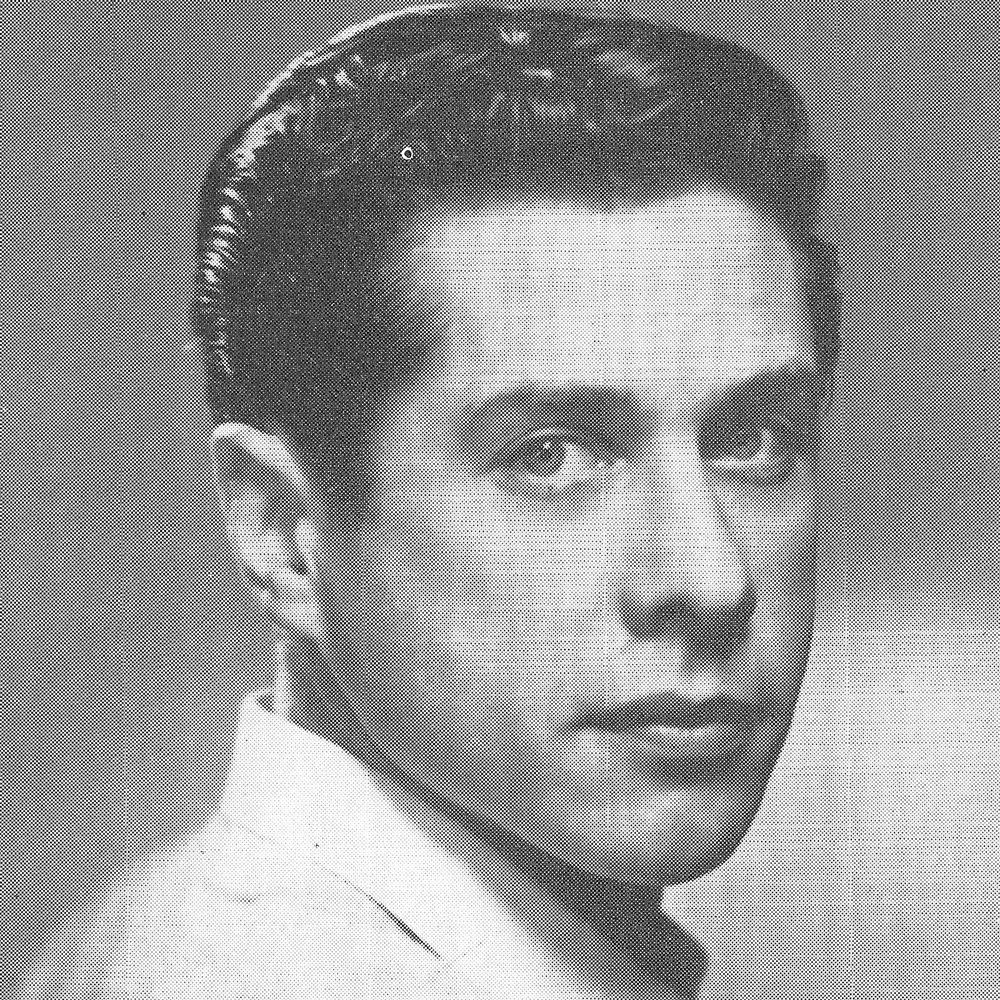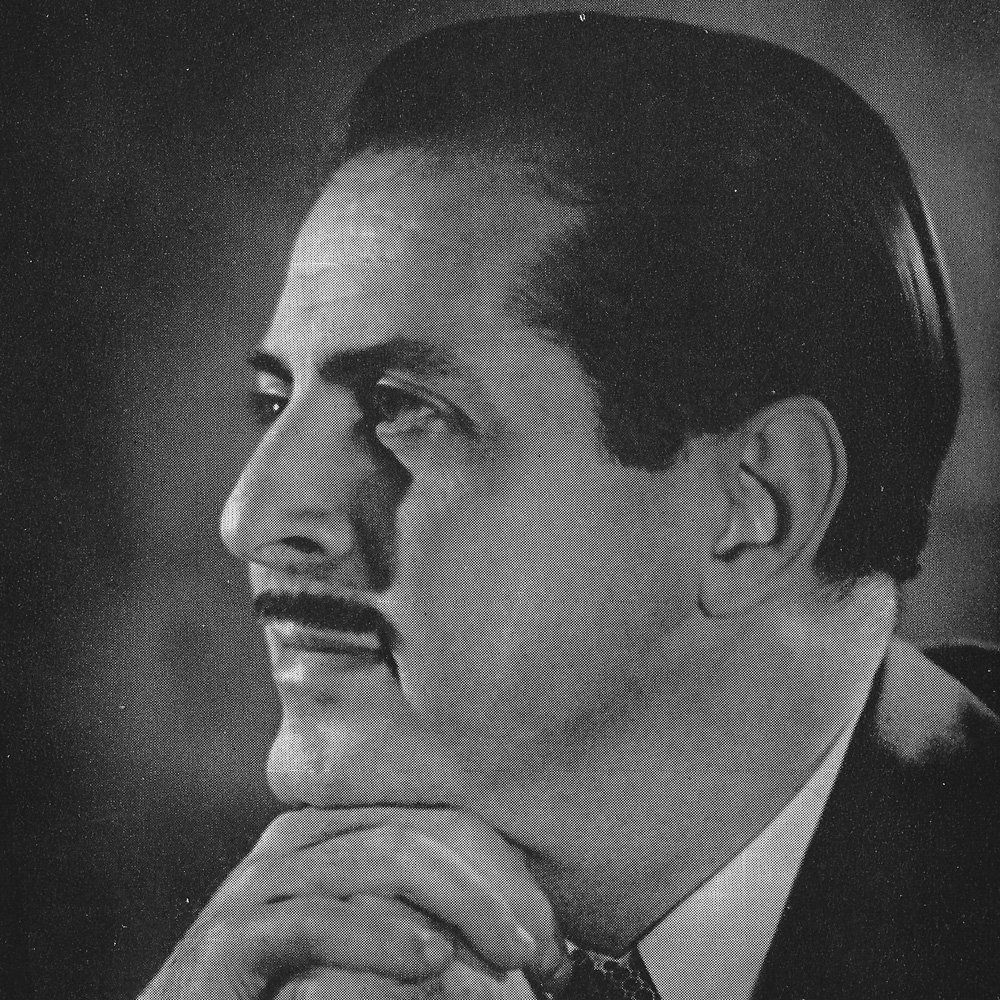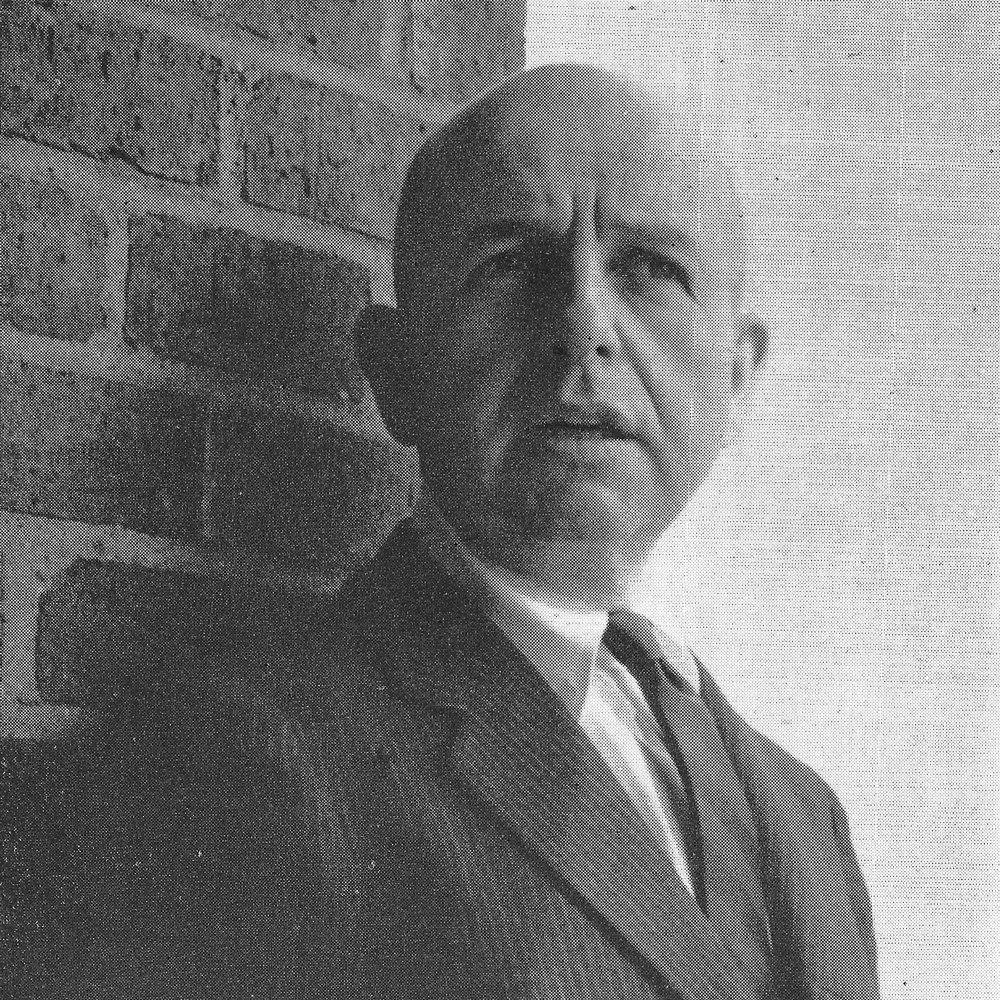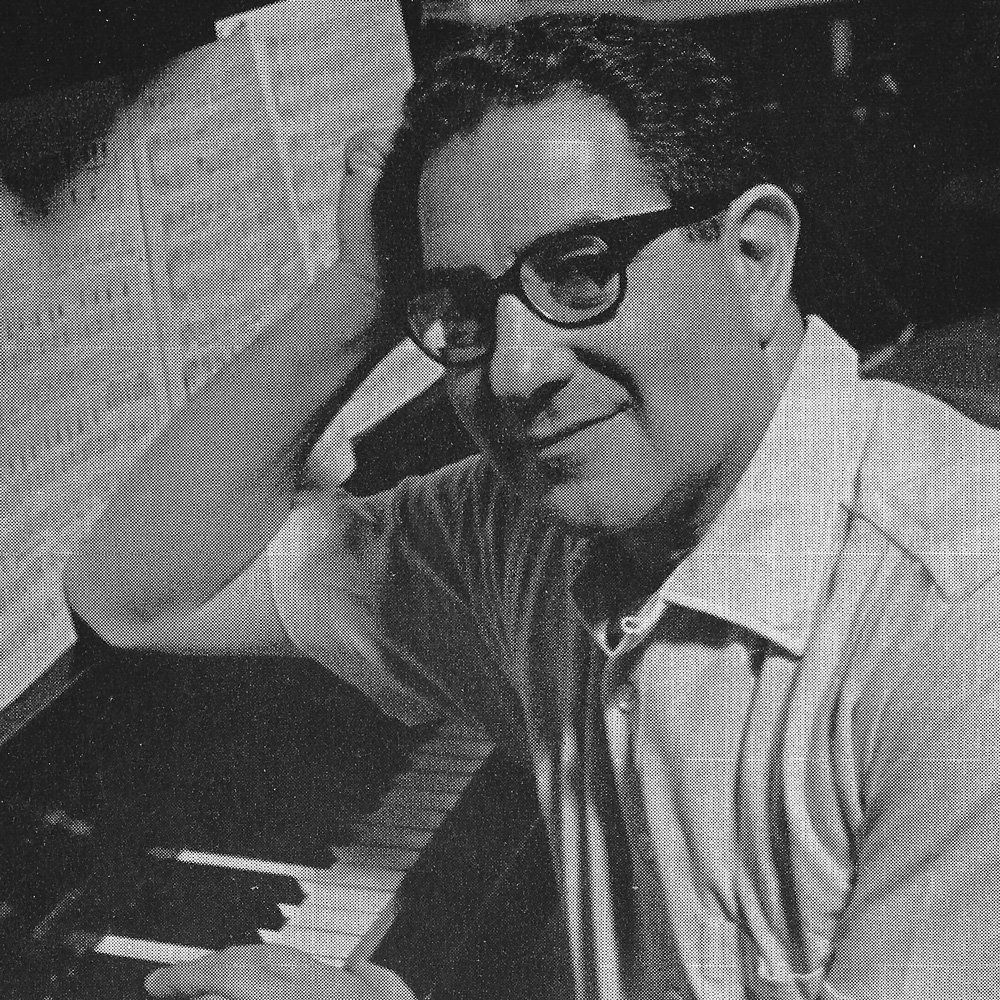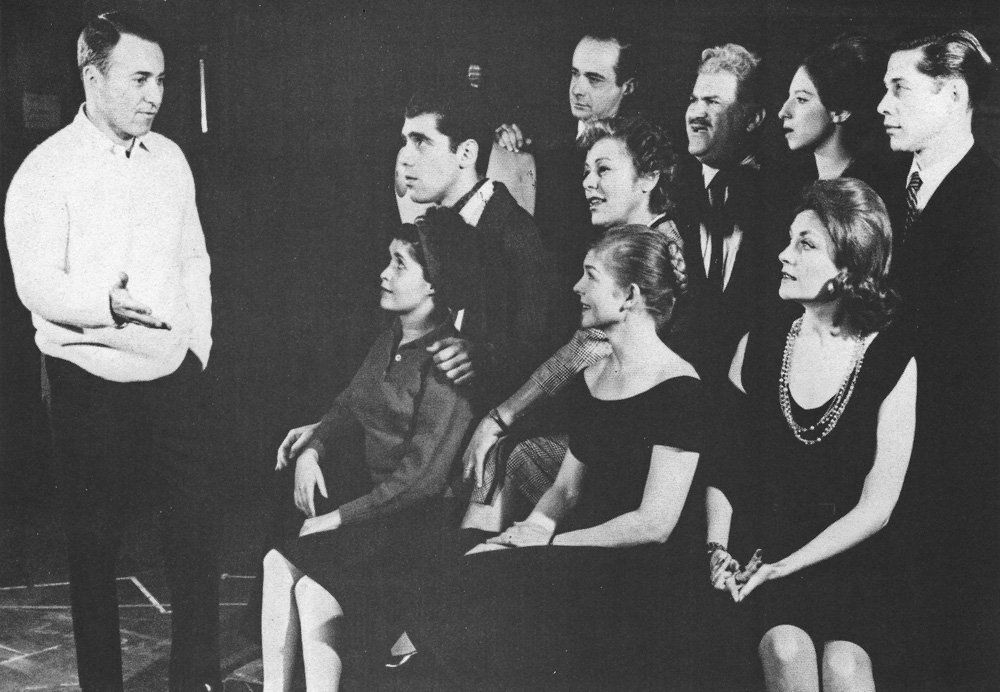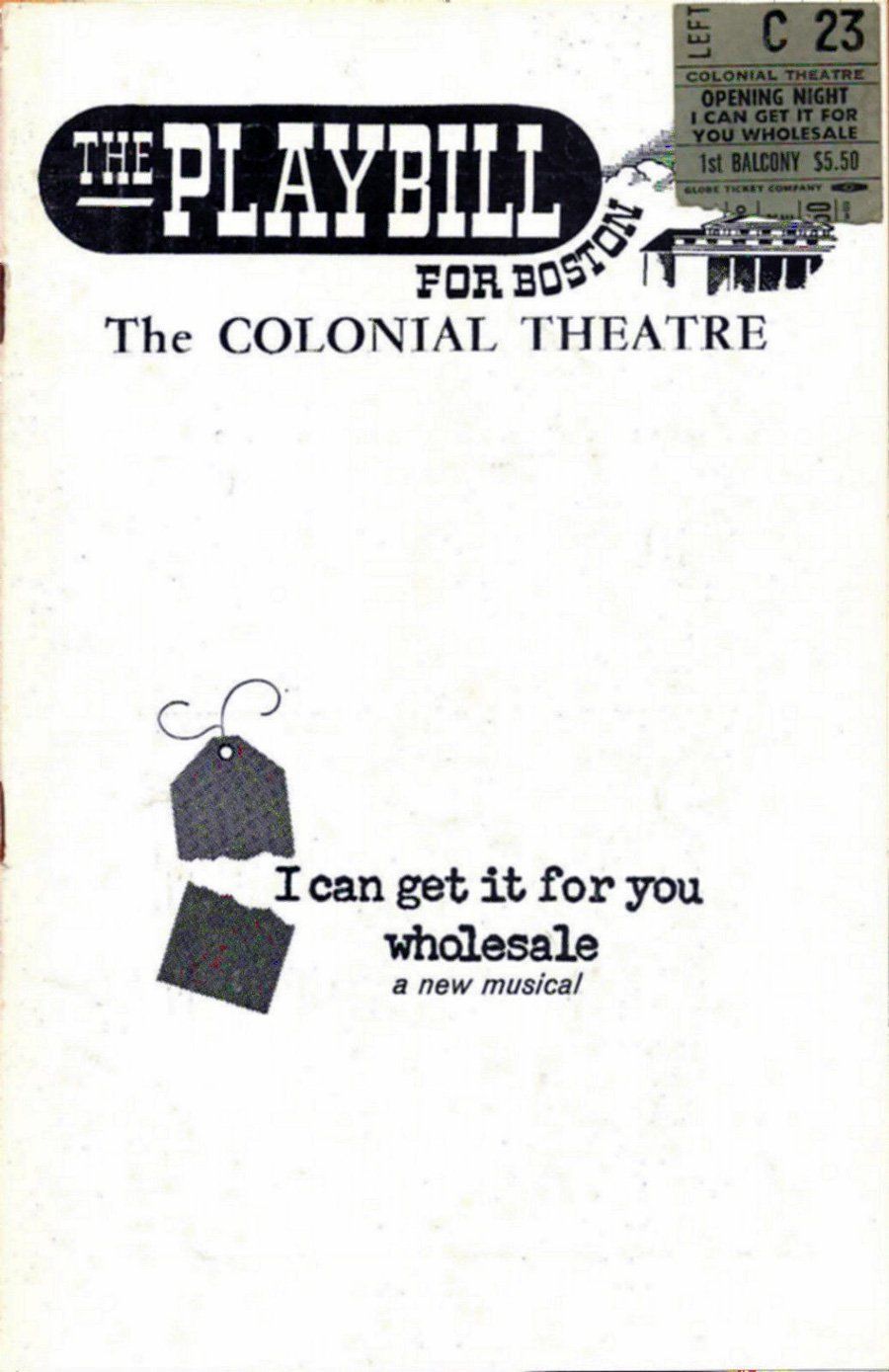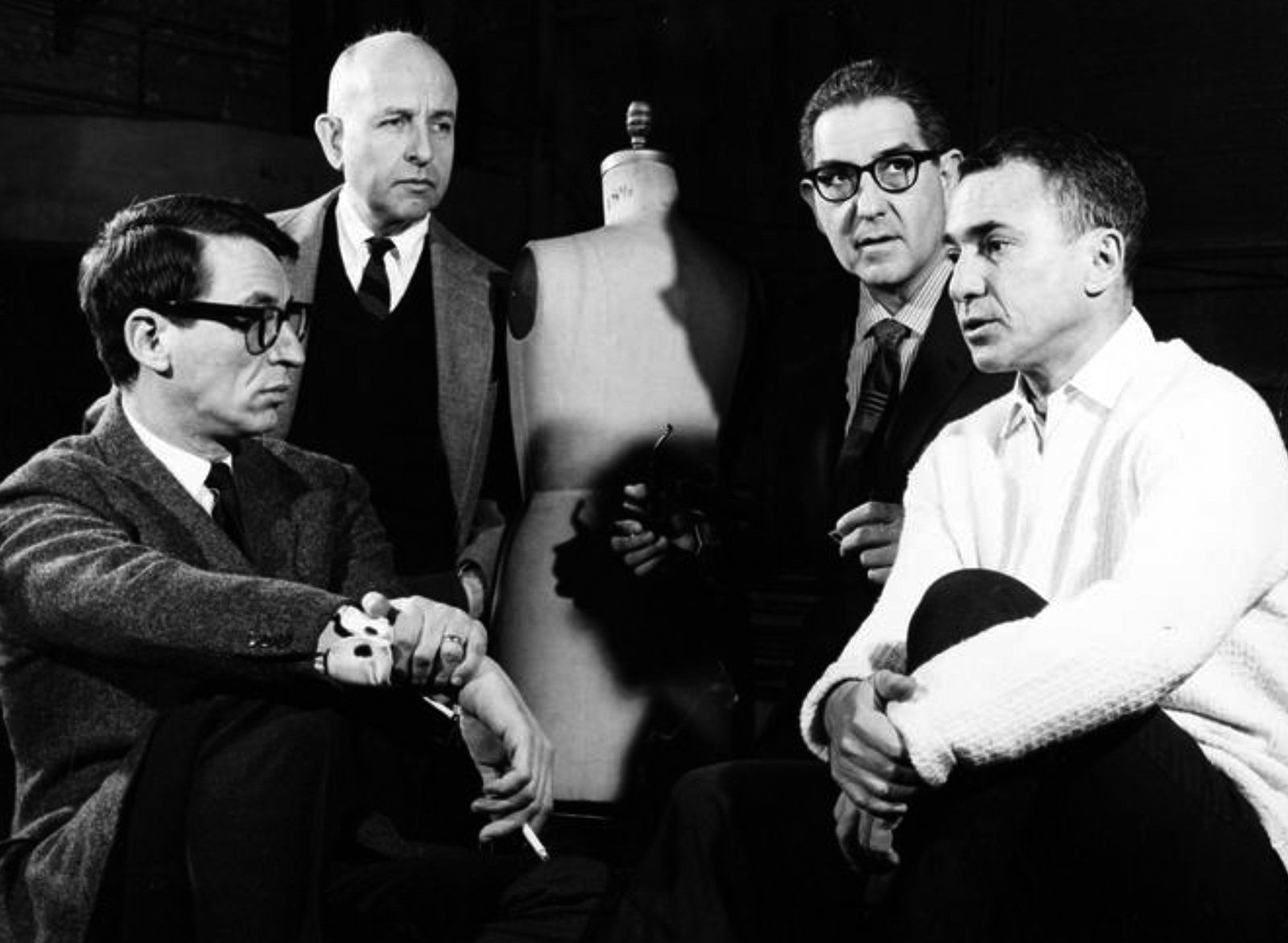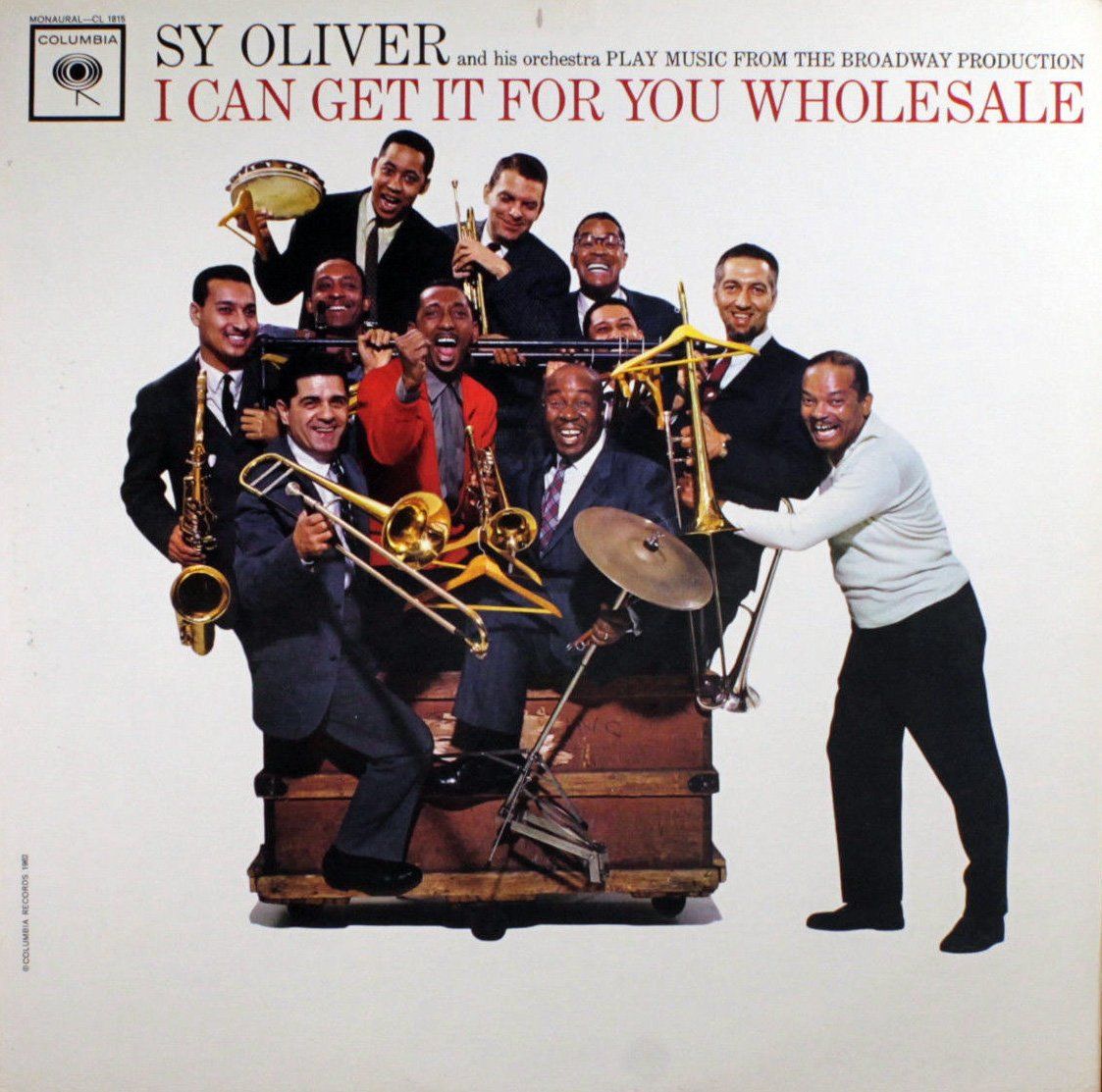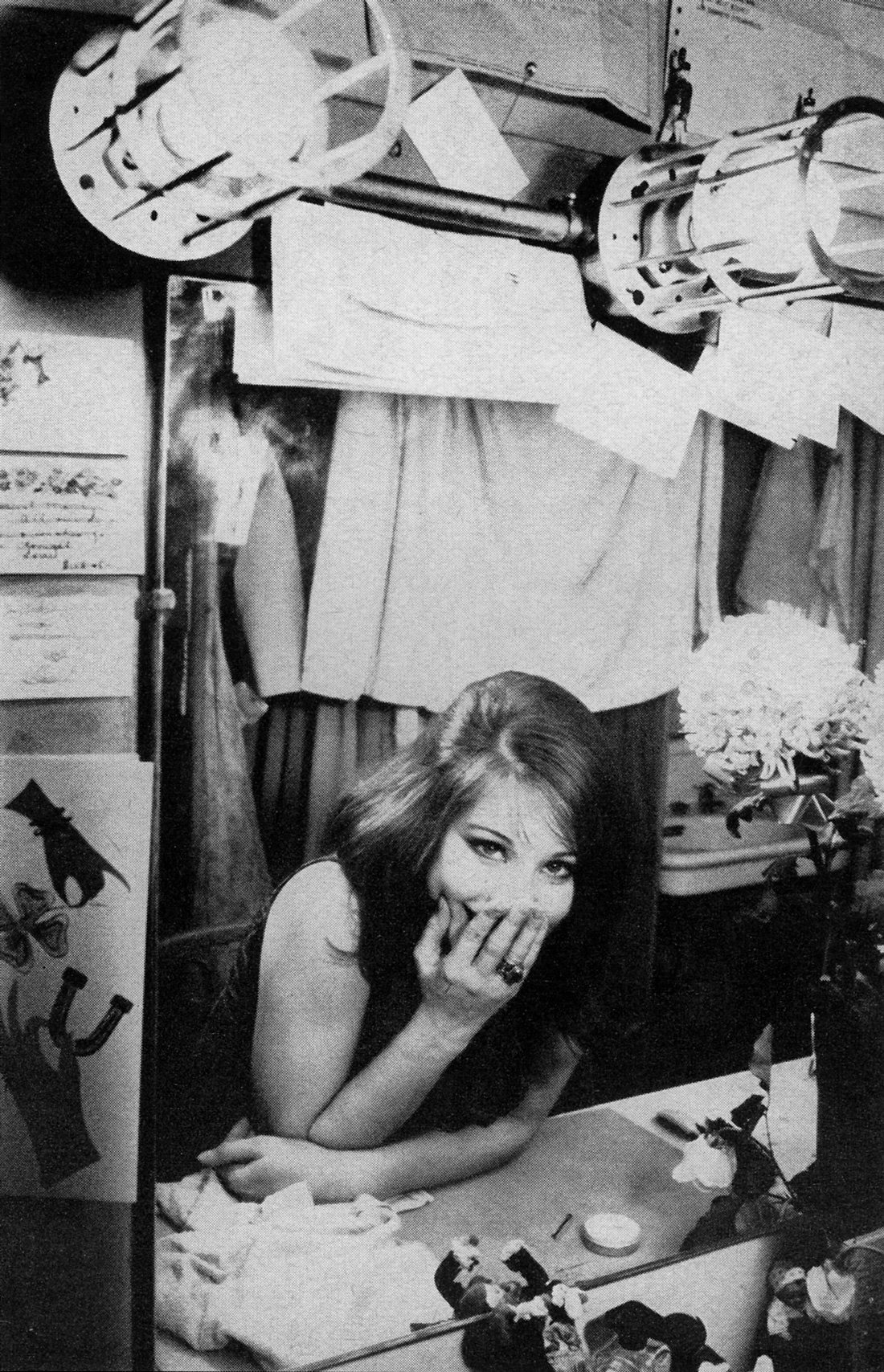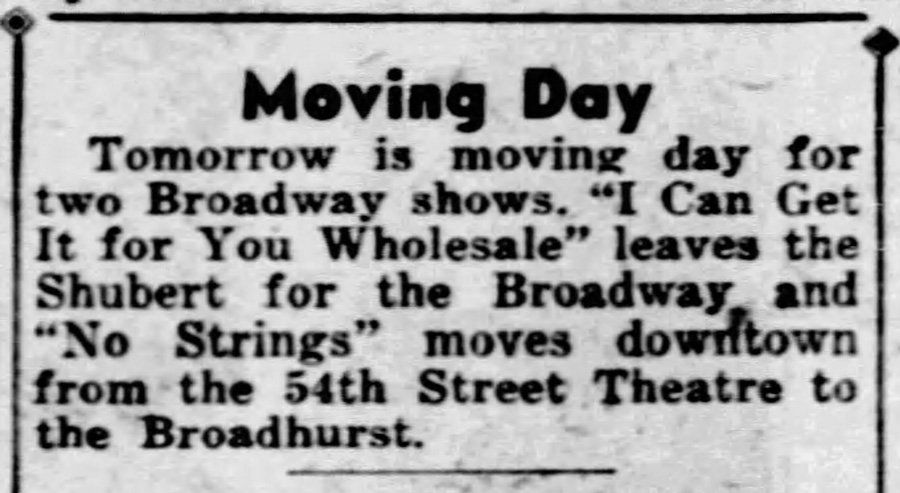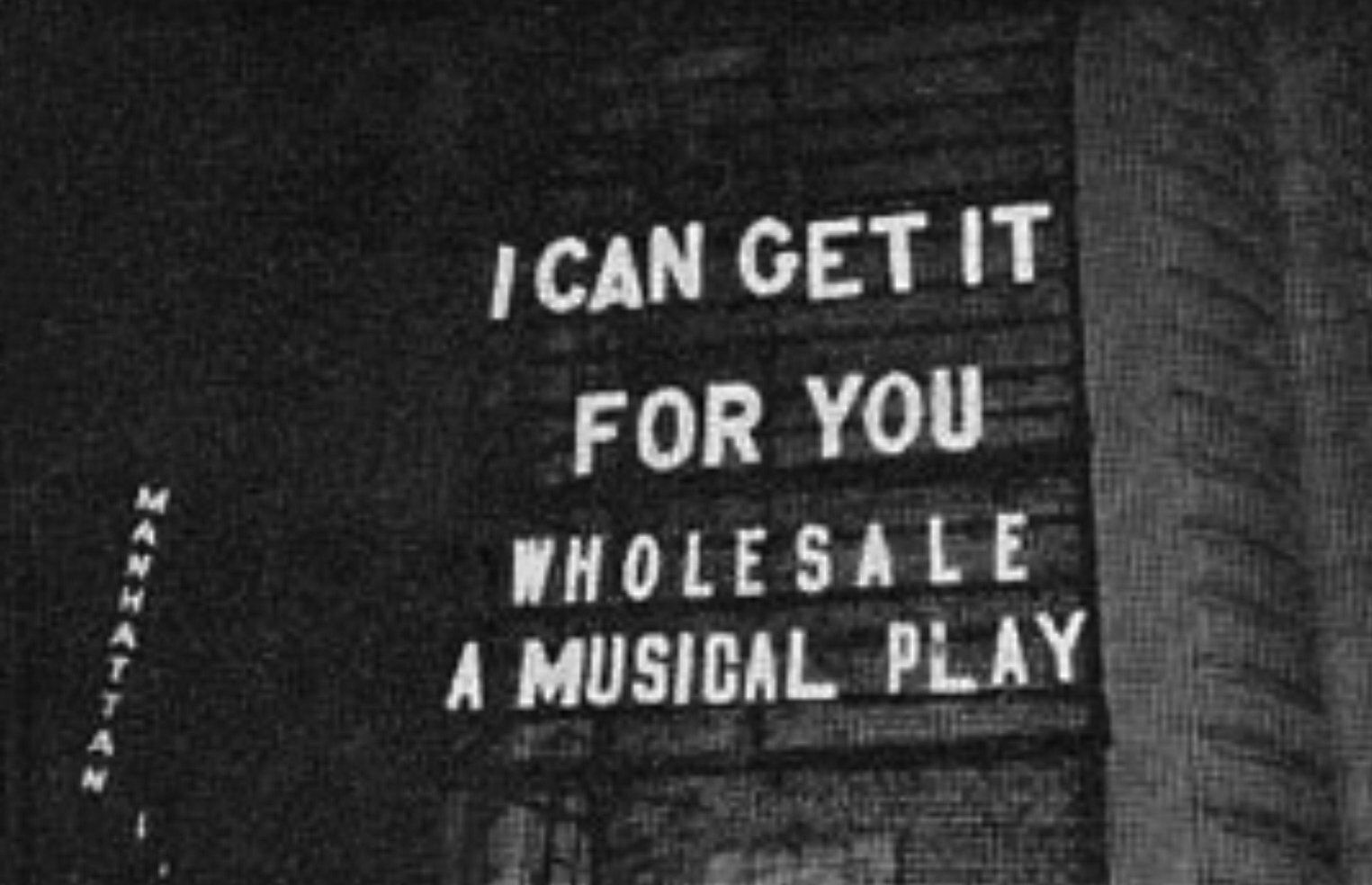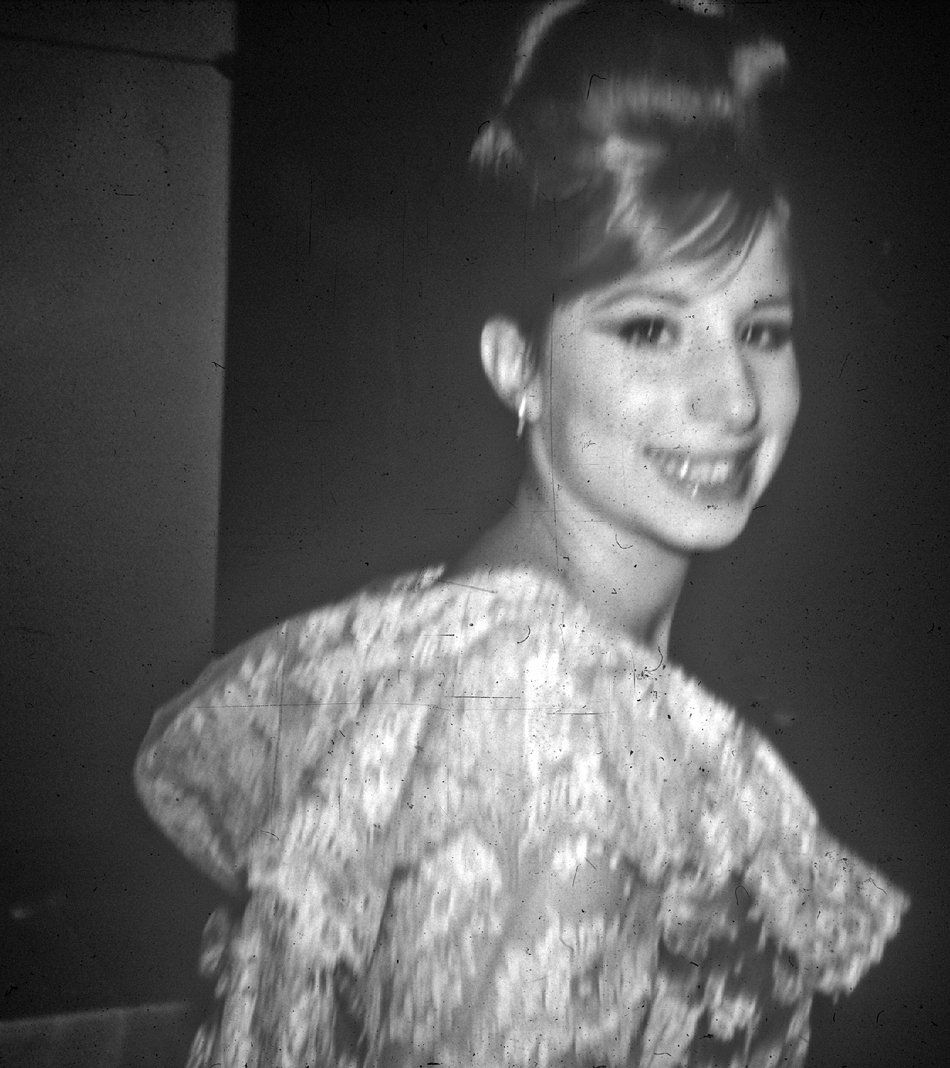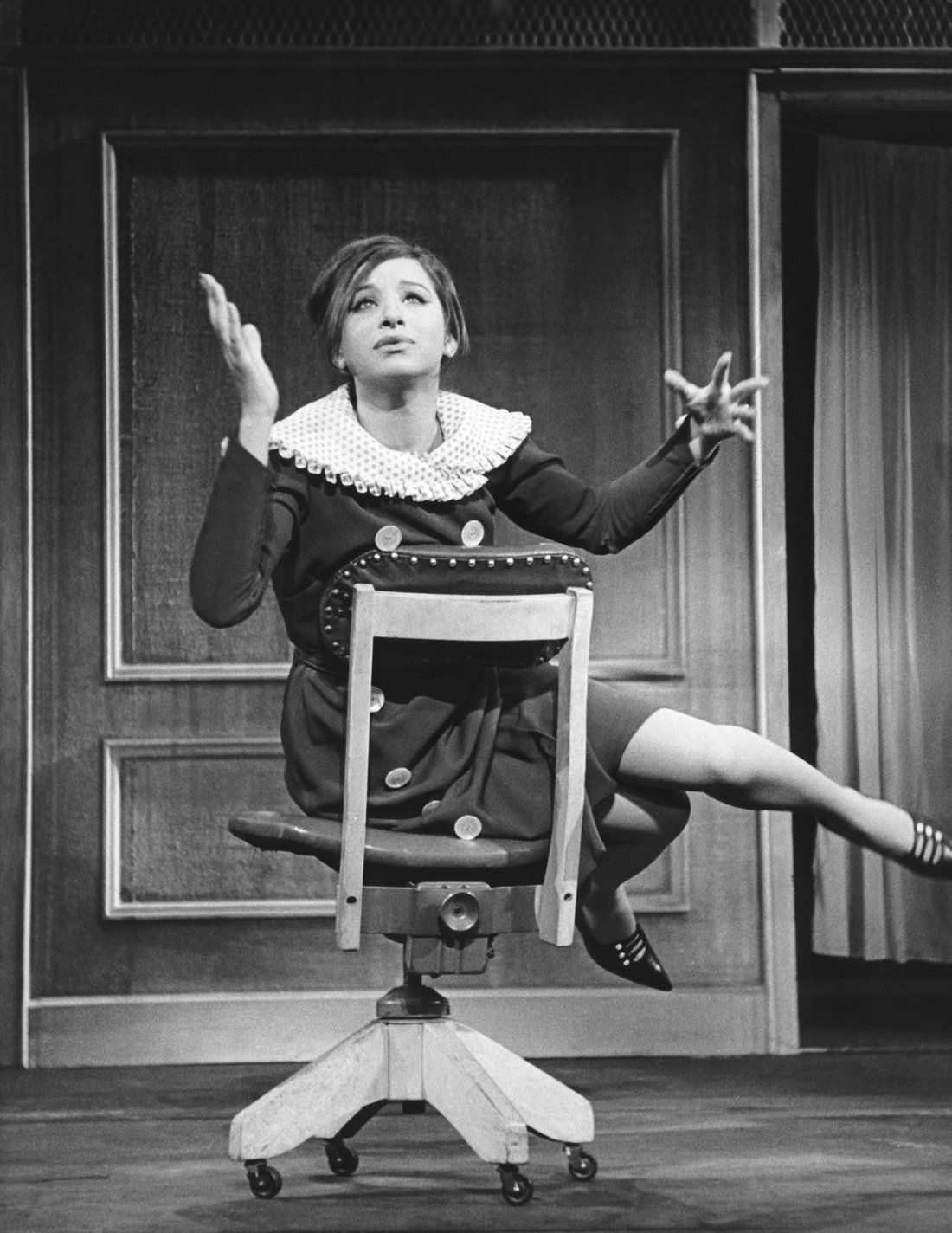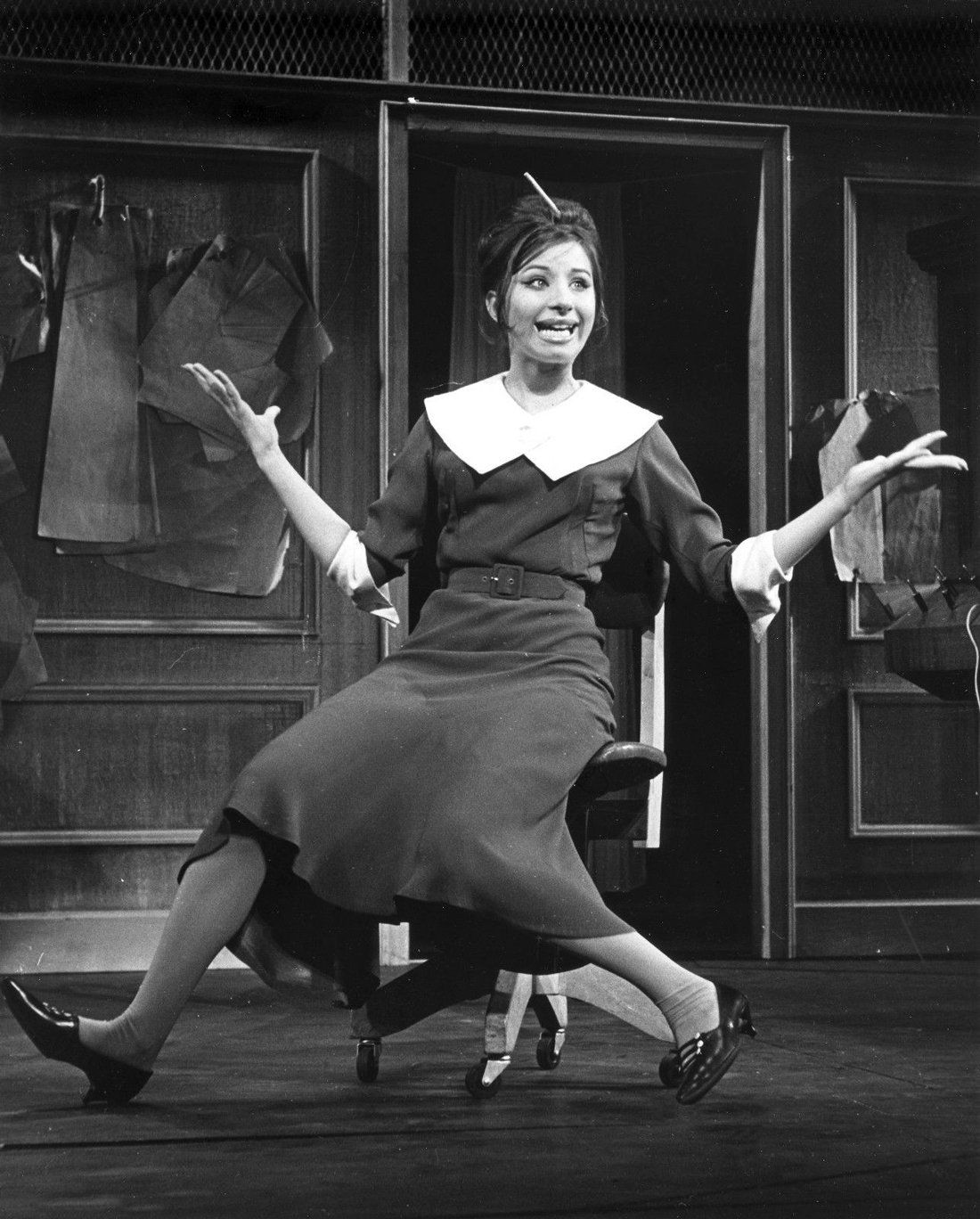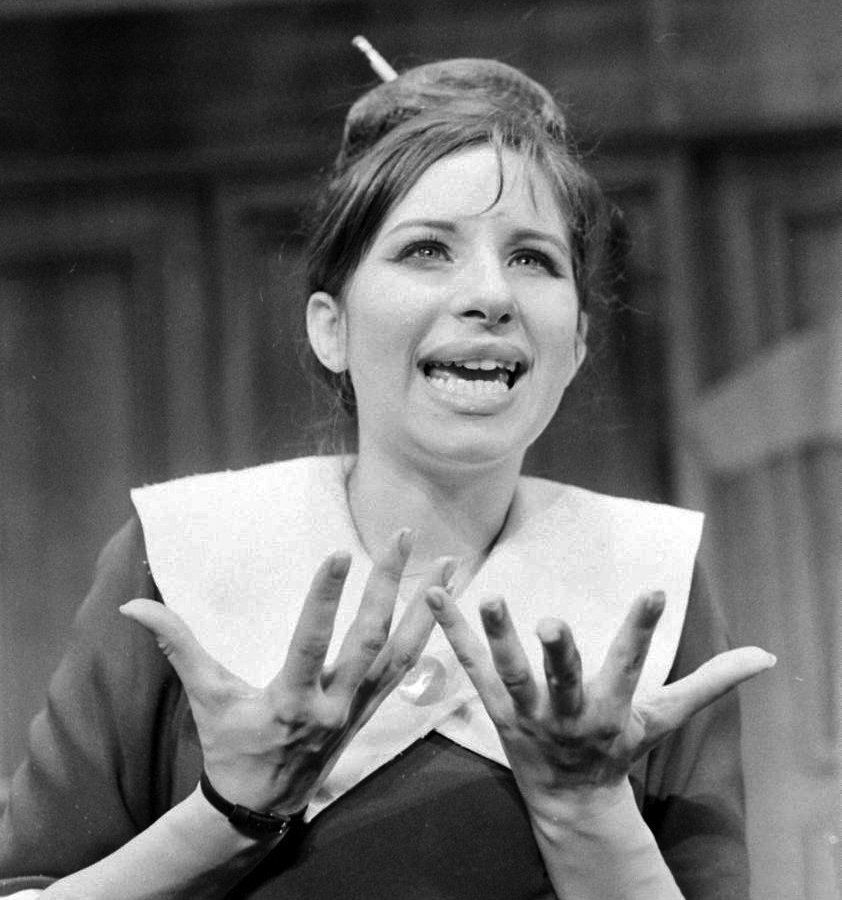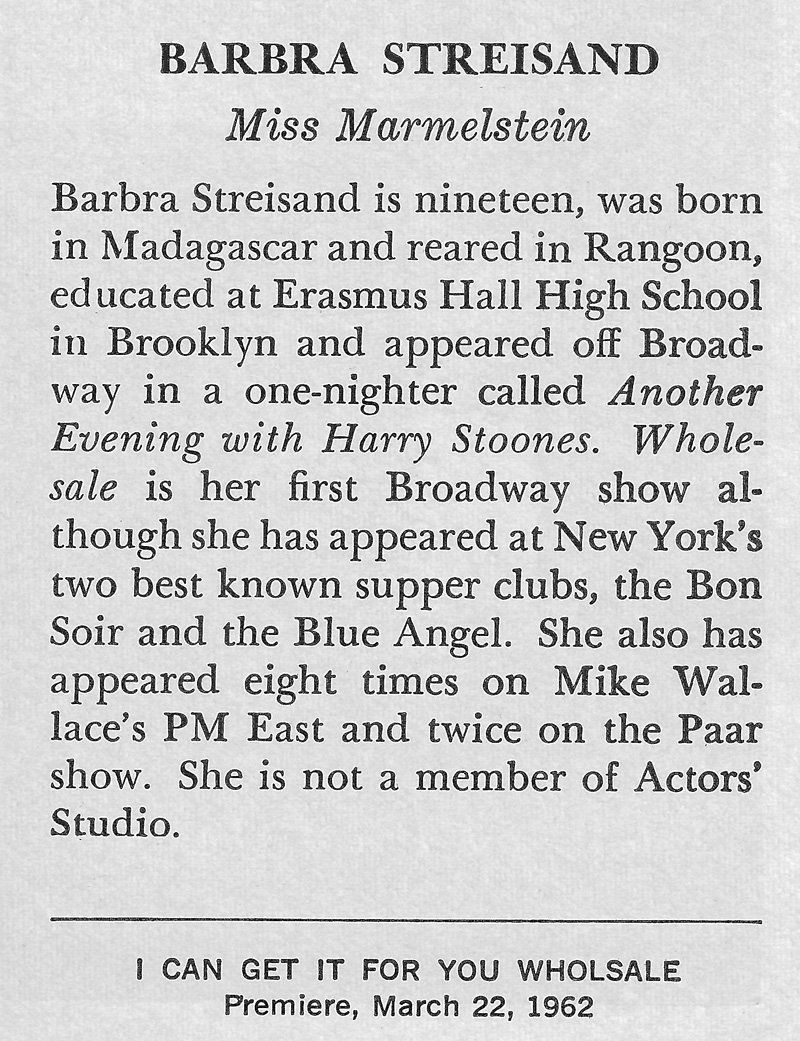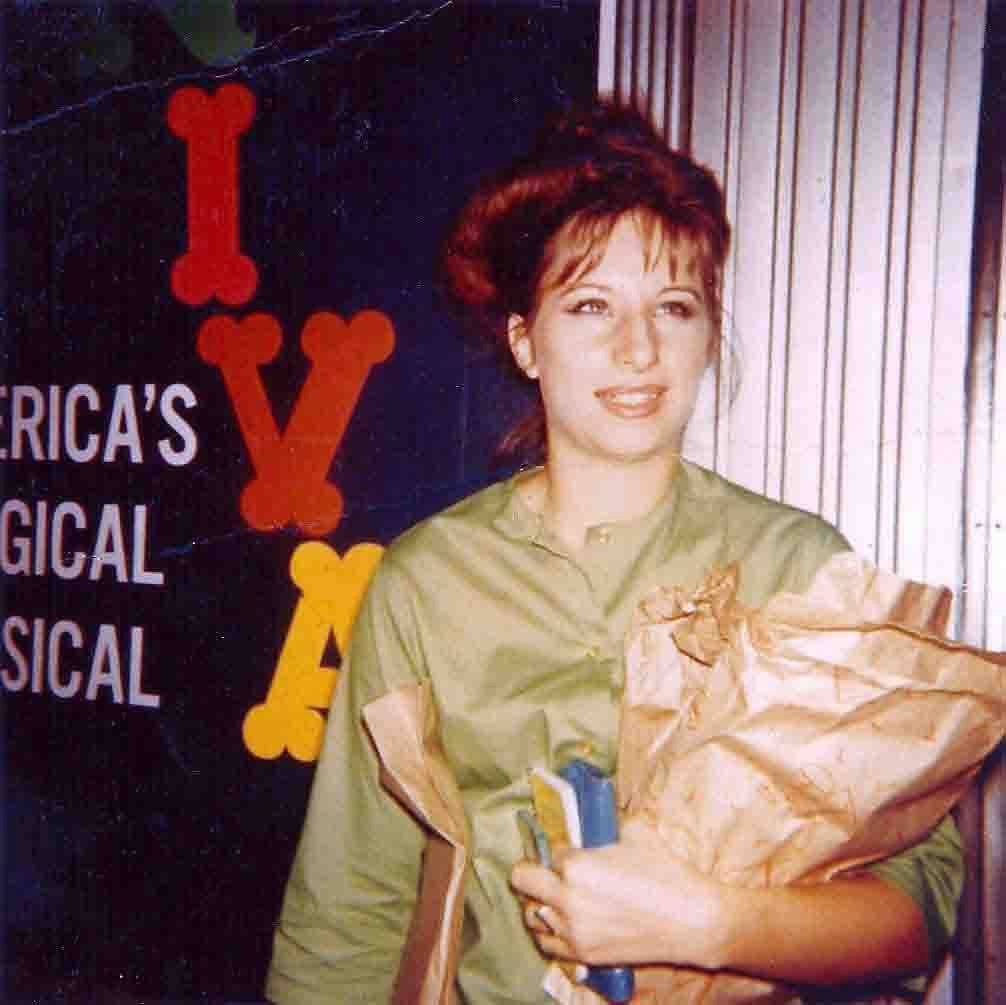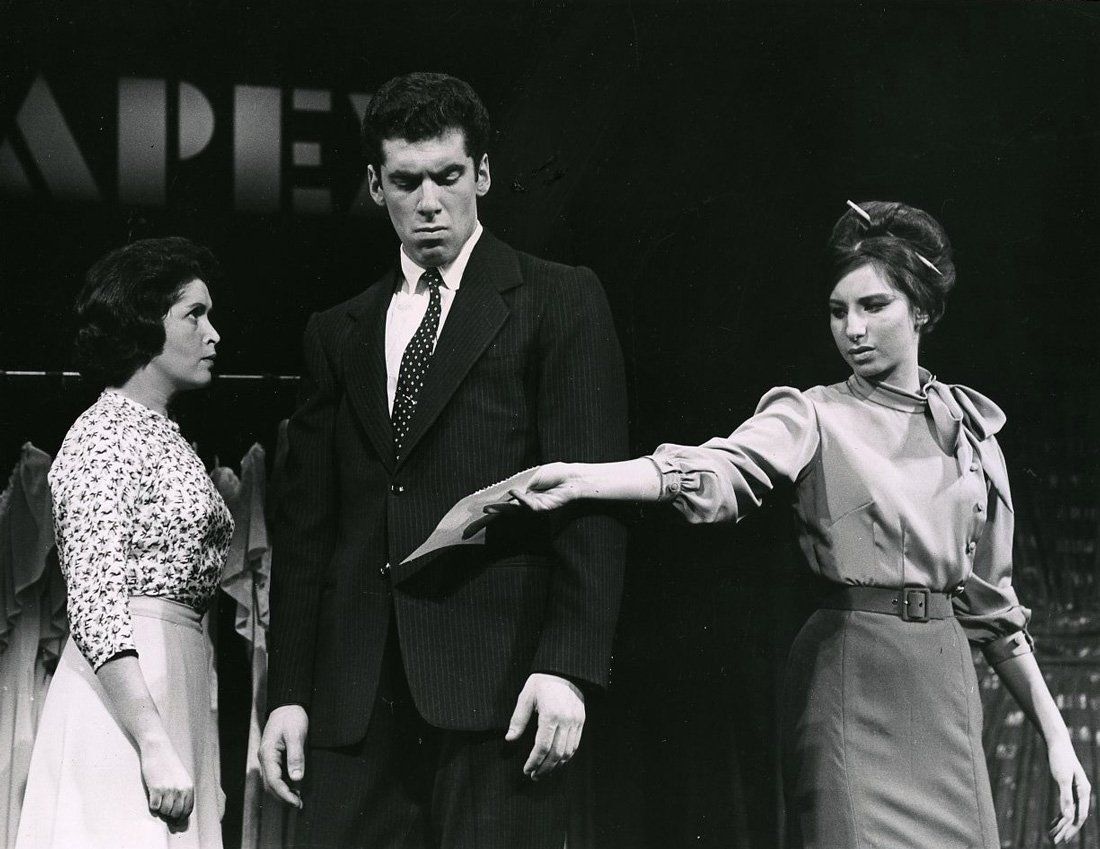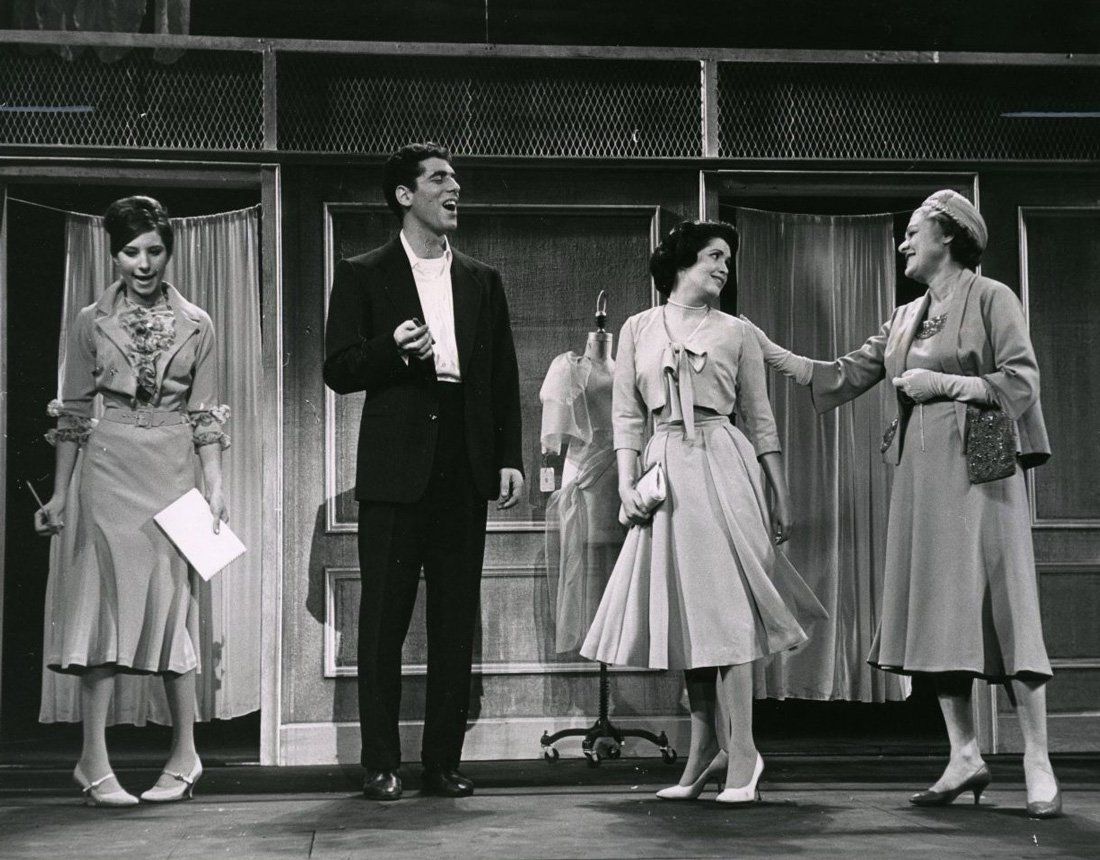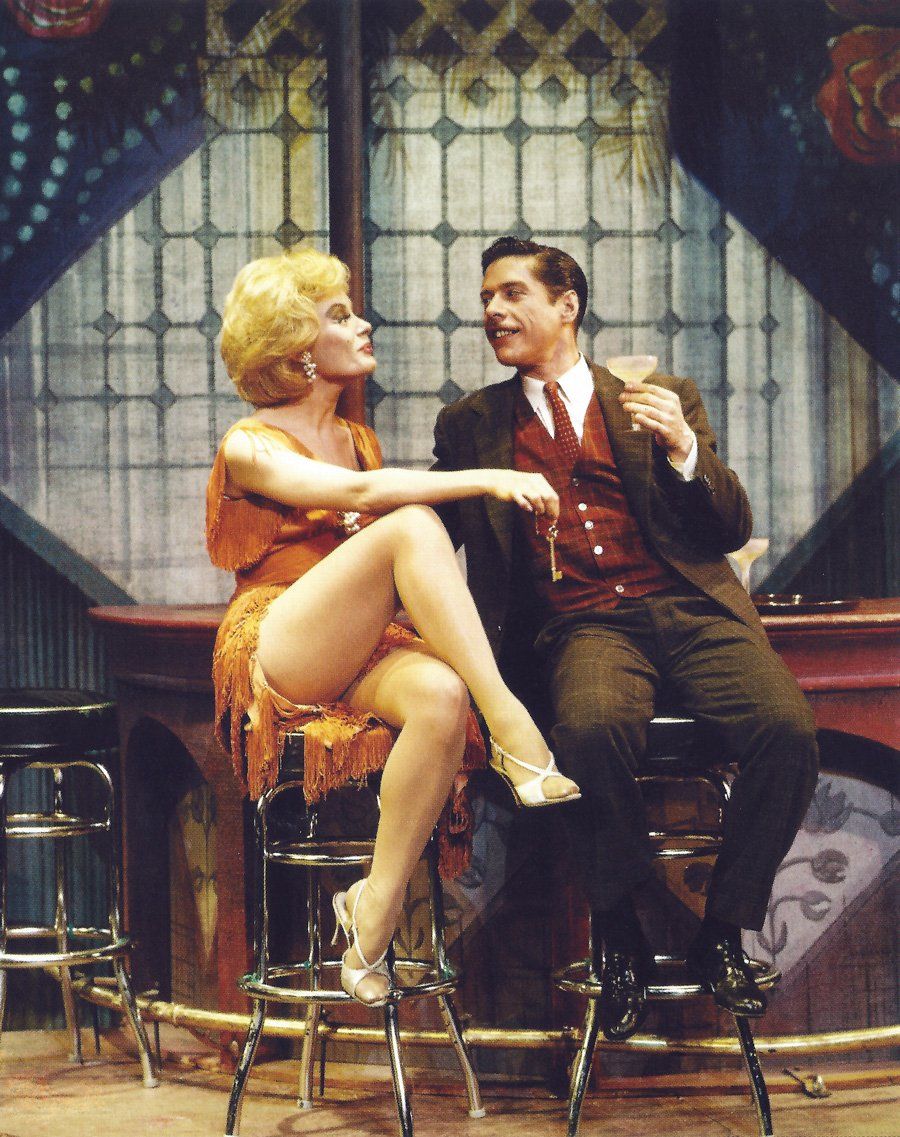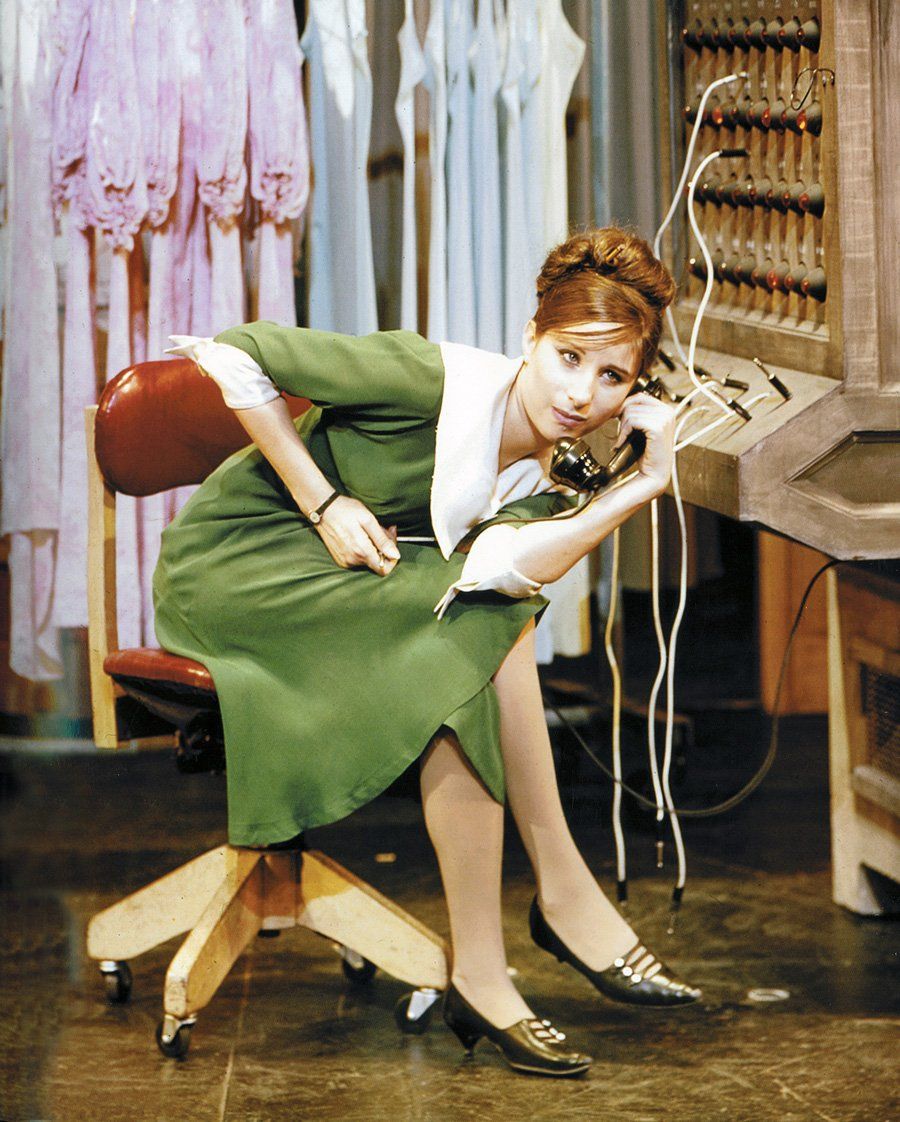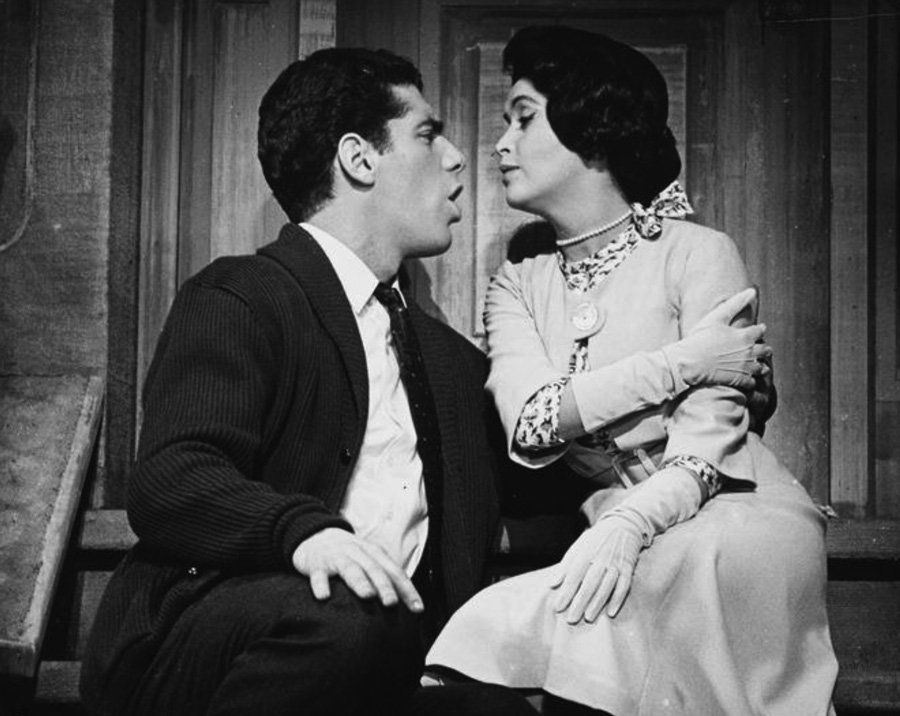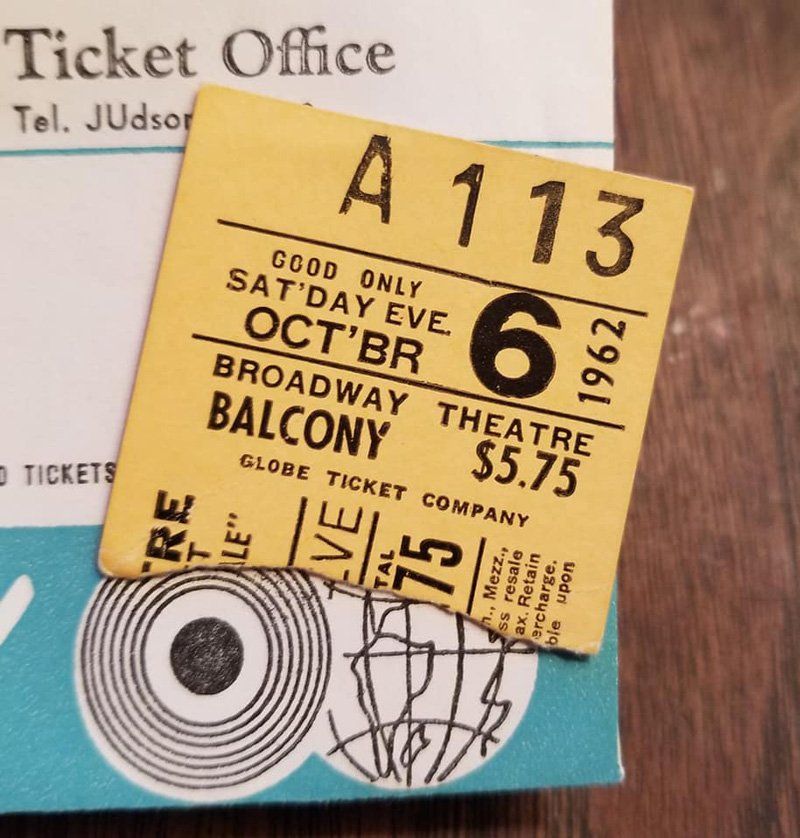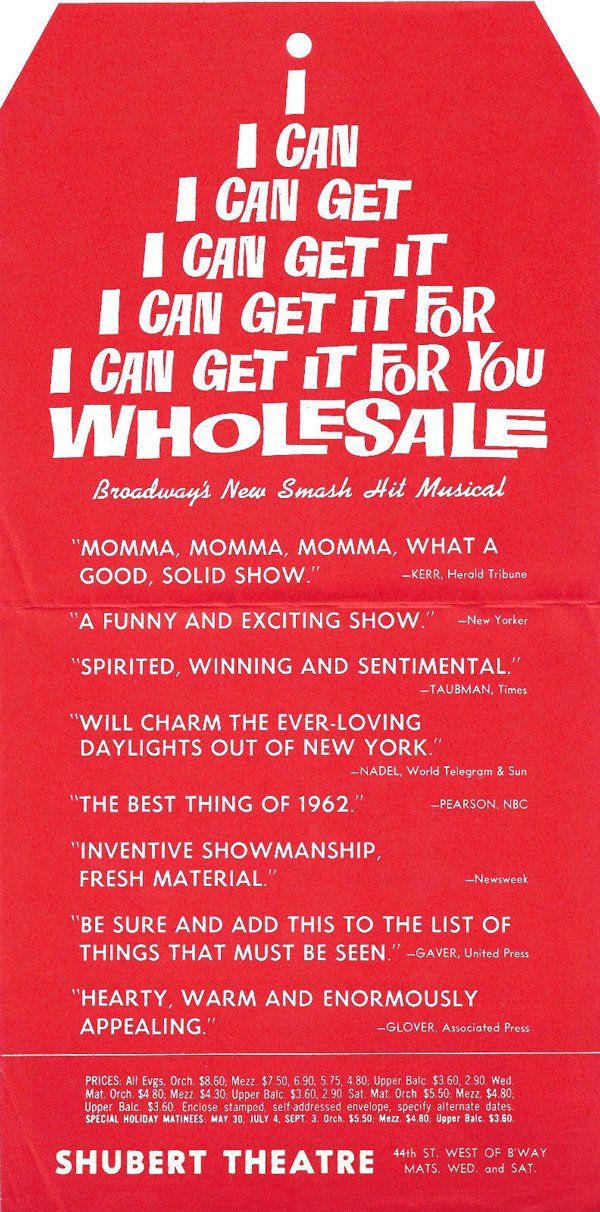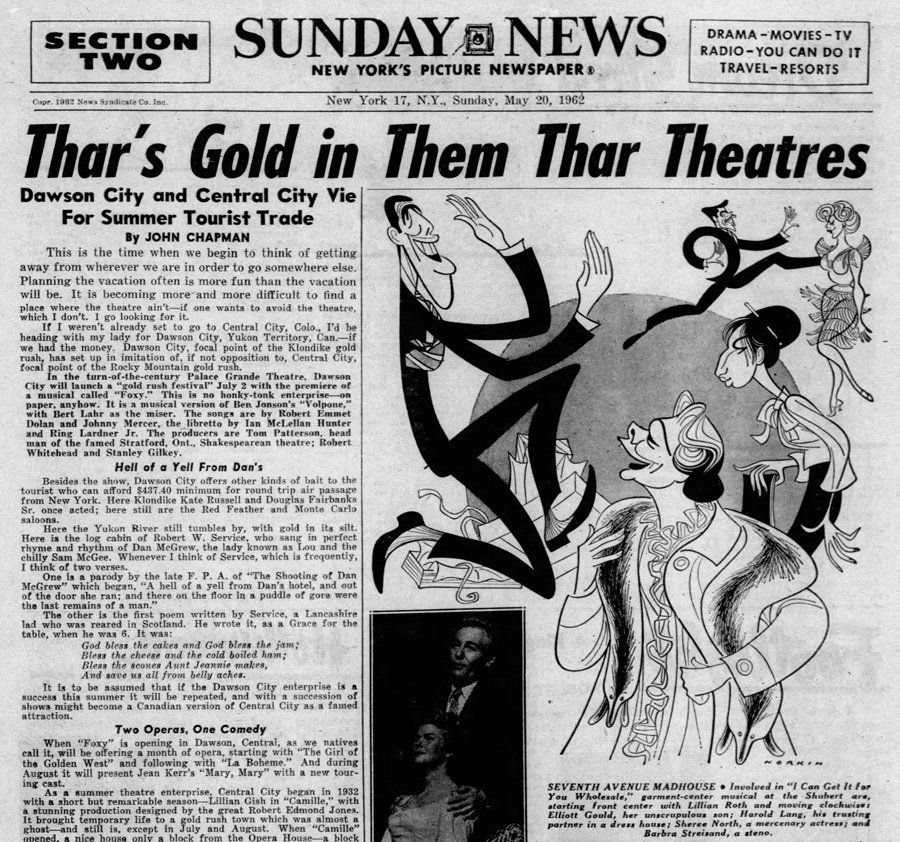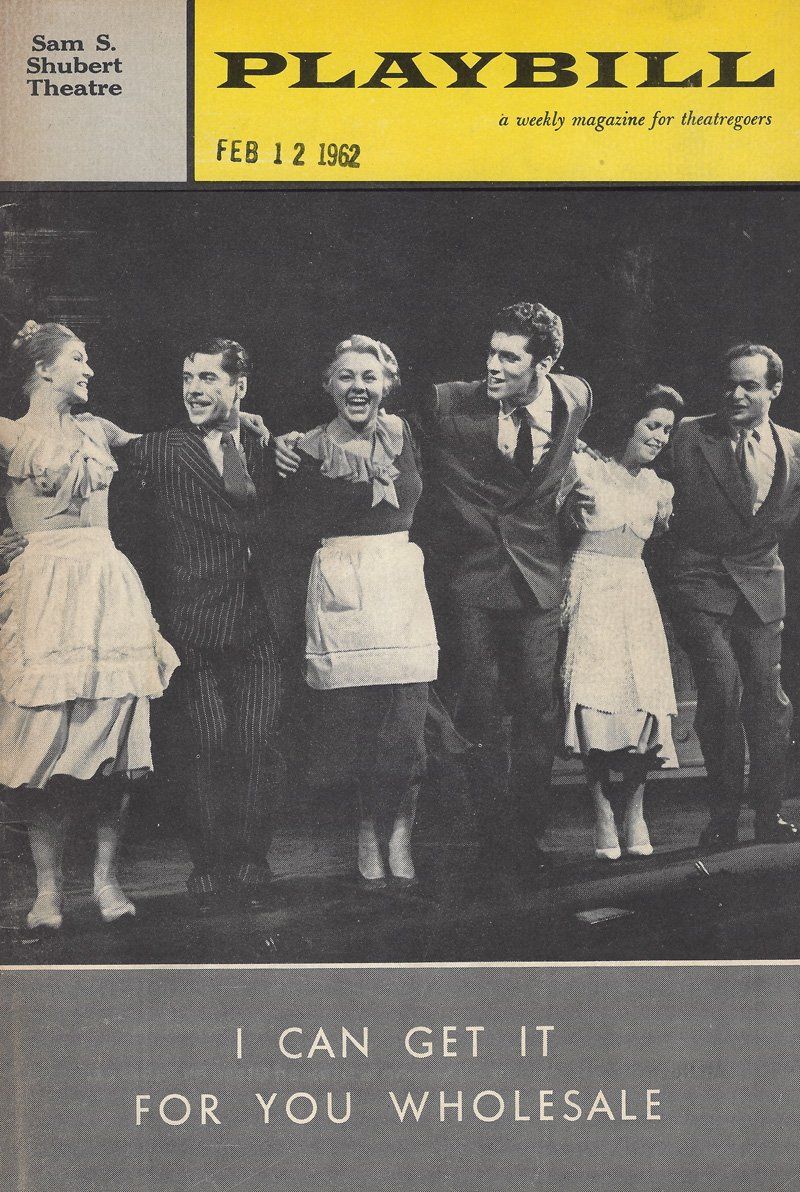The producer of Wholesale was the notorious David Merrick (whose nickname in the business was “The Abominable Showman”). Merrick was infamous for his publicity stunts, including the one in 1961 when he found seven New Yorkers who had the same names as the seven leading theater critics. Merrick ran newspaper ads for his show, featuring glowing reviews from the critics, who were not actually critics.
“[Merrick] let me have the cast and designers I wanted,” Laurents stated in his memoir. “He gave me complete freedom at rehearsal.”
The biggest obstacle in casting the show was finding the leading man to play Harry Bogan – described by Laurents as an “antihero.” Ken Mandelbaum described how the character came off in Weidman’s 1937 book: “Harry narrates the novel, and his stream of nasty cynicism is loathsome. In the novel, Harry despises his Jewishness and considers everyone except Ruthie a jerk to be manipulated.”
Bogen was not written as such an extreme character for the musical version, however. Harold Rome told an associate, “the garment trade isn’t what the show’s about. Sure, it’s the Seventh Av. Locale and has its flavor, but what it’s about is a Jewish boy from the Bronx who goes wrong.”
Laurents, at first, considered casting singer Steve Lawrence as Bogen. His wife, Eydie Gormé, auditioned for Wholesale, too. While Laurents liked Gormé for the role of Ruthie, he felt Steve Lawrence wouldn’t work as Harry because, ultimately, Lawrence was not an actor. “The only chance [Wholesale] did have to succeed commercially was for it to succeed artistically.” Laurents, therefore, declined to cast the husband and wife singers.
They also tried to cast actor Laurence Harvey as Bogen, but David Merrick botched the contract negotiations with him.
Instead, Laurents hired 23-year-old Elliott Gould to play Harry Bogen. Weidman declared that Gould “is so personable that his playing will take some of the curse off Bogan as the character might impress you in reading the books.”
Arthur Laurents put together “a cast that included two beginners who became stars, Barbra Streisand and Elliott Gould … and two former stars, Lillian Roth and Harold Lang. Most of the others were exceptional dancers, a few were exceptional singers, and all could act. With that company, the prosaic flatness of Wholesale and its songs could be given theatrical life.”

